Yaakov will soon learn that relationship with God is not entered into in one’s own strength but at the end of one’s strength. Introduction:
For a long time Yaakov has endeavoured to understand the Elohiym of his father Yitzchak, the Mercy (YHVH) of his grandfather Avraham. He has recognized HaShem as his Judge, Provider, Protector and Fear of Yitzchak, and has sought to obey His instructions. Now, having been freed from the enemy behind him (Laban), he walks forward into the arms of an old enemy, his brother Esau. Yaakov enters into a season of great distress. The unknowable future and the threat of his brother’s wrath bring great emotional turmoil. In his struggle Yaakov cries out to God, recalling the wonders of God and His promises. It is in this season that Yaakov’s knowledge of God (Ha-Elohiym: The Judge) turns into his being known by HaShem (YHVH: Mercy). The Hebrew Paniym, meaning face/faces, is used seven times in this sidra (section), thus conveying an intimate and complete sense of personal relationship within the passage. Yaakov will soon learn that relationship with God is not entered into in one’s own strength but at the end of one’s strength. 32:1 Rising early in the morning Laban (White) kissed his grandchildren and daughters and blessed them. Then Laban left and returned to his place. Rising early is an allusion to firm resolve. The fact that Laban omits kissing Yaakov stands in stark contrast to their first encounter (Gen. 29:13). A father’s blessing, even the blessing of an unrighteous father, releases his children. Whether Laban knew it or not, by giving his daughters his blessing he was releasing them from curse. They were leaving Laban’s accursed idolatrous community and entering into the promised blessings of God. 2 And Yaakov ha-lach walked forth in l’dar’co his way, and encountered mal’acheiy (Messengers, Angels) of Elohiym (God: The Judge). The book of Daniel (Dan. 10:10-15) reveals that the messengers/angels of God are charged with areas of governance and are constantly at work in the service of HaShem. Darashot Ha-Ran 5:35 notes that the Shekhinah (Manifest Glory) was present in Yaakov’s revelation at Beit-El and that when Yaakov left Laban to return to the land of Israel the Shekhinah revealed to him that the land possessed great eminence over other lands. It goes on to say that the phrase, “met him” implies that the angels always walk in that land and therefore are met by one who enters it. It is for this reason that Jacob called that place Machanayim [camps]. For there are three levels of habitation: the habitation of the celestial encampment, the heavens; the habitation of the terrestrial encampment, the entire earth—with the exception of the land of Israel; and the land of Israel itself, which is both the habitation of the terrestrial encampment (human beings dwelling there) and the habitation of the celestial encampment (“for I have met there a camp of angels”). 3 Then Yaakov said when he saw them, “Machaneih Elohiym, This is the camp of God”, and he named that place Macha’nayim (Camps). Later in the text the term machanot is used to describe two camps. It is therefore noteworthy that the term machanayim is used in verse 3. Radak notes that Yaakov’s reaction to these angels was similar to that of Avraham, his grandfather, in Genesis 18, 20, when the latter is described as running to welcome them as soon as he saw them (Radak on Genesis 32:3:1). Yaakov’s naming of this place reflects his realization that God is in the place. “This is the camp of God” recalls Yaakov’s words at Beit-El, “This is none other than the House of God!” [Gen. 28:10-22] Parashat Vayishlach (And he went forth) This Parashat begins the journey of Yaakov’s return to Eretz Yisrael (The Land of Israel). In one sense his life of exile and returning, like the lives of Avraham and Yitzchak, acts as a type for the cyclical rhythm of Israel’s being exiled and returned. 4 Then Yaakov sent malachiym messengers l’panayn before his face to his brother Esau (Hairy), to the land of Seiyr (Hairy), the field of Edom (Red). Having met with the messengers of God, Yaakov now sends his own messengers. The Hebrew malakh is the root for both angel and messenger. Thus the messengers of God share their title with the messengers of Yaakov. Based on the common noun “malakh” Rashi concludes that Yaakov sent angelic messengers to meet Esau. The name Seiyr and Edom allude to the fact that Esau has become an established presence in the land. Seiyr is the mountainous region from Yam ha-melach (the Sea of Salt) south to the Gulf of Aqaba. 5 And commanded them saying, “This is what you should say to adoniy my lord, to Esau: ‘This is what your servant (av’deicha) Yaakov said: I’ve been lodging (gar’ti) with Laban, and have lingered until now. 6 Now I’ve come to possess oxen and donkeys, flocks, male servants and female servants. I sent word to tell my lord, in order to find favour in your eyes.’” In explaining his current status to Esau, Yaakov uses the term “Gar’ti” from the root “Geir” meaning stranger or alien. He does this in order to humble himself before Esau as one who has no princely status, having remained nothing more than an alien. Additionally Yaakov uses the term adoni (My lord) to address Esau and the term av’deicha (Your servant) to refer to himself. 7 The messengers (ha-malakhiym) returned to Yaakov saying, “We went to your brother, to Esau, and he’s also coming out to meet you—and 400 men with him.” If Esau’s intention at this juncture was to forgive Yaakov he would have had no need of 400 men. The fact that he had mustered such a large contingent is evidence that he intended to overcome Yaakov by force and take what he believed rightfully belonged to him. He is ready for war and is aware that Yaakov is vulnerable having only family and servants in his camp. Rashi paraphrases, “We came to the person whom you regard as your brother, but he behaves toward you as a wicked Esau—he still harbours hatred”. 8 So Yaakov became extremely afraid and distressed. He divided the people with him, along with the flocks and herds and camels, into two camps machanot, 9 for he thought, “If Esau comes to the one camp ha-machaneh ha-achat and strikes it, the camp ha-machaneh that’s left will escape.” Yaakov, the patriarch, blessed of HaShem and chosen for prosperity among the nations, having been fiercely certain of his position only days before when challenging Laban, is now terrified, distressed and afraid. This vulnerability only serves to show his great need for HaShem, his realization that in his own strength he cannot overcome the army of Esau. Up to this point Yaakov has shown great integrity and has worked hard to gain wives and wealth. At this juncture he has come to the end of himself, and so he calls upon God. 10 Then Yaakov said, “Eloheiy God of my father Avraham, v’Eloheiy and God of my father Yitzchak, HaShem (YHVH: Mercy) Adonai, Who said to me, ‘Shuv Return to your land and to your relatives and I will do good with you.’ Yaakov calls on God the Judge as God of his father Avraham and as God the Judge of his father Yitzchak, and finally, he calls on HaShem (YHVH) God as Mercy, crying out in desperation to a personal God, Whose Name he doesn’t know (Exodus 6:3). In his fear of the unknowable future Yaakov turns back to the promises God has already pronounced. He speaks back to HaShem the words that HaShem has spoken over him, not in order to remind God of His promise but in order to remind himself of God’s faithfulness. 11 I am small in respect to all ha-chasadiym the mercies, graces, kindnesses and all ha-emet the truth, faithfulness that You have shown to your servant. For with only my staff I crossed over the Yarden (descender), and now I’ve become two camps (Machanot). Instead of whining Yaakov acknowledges his smallness before God and the prosperity he has experienced due to God’s blessing upon him. 12 Deliver me, please, from the hand of my brother, from Esau’s hand, for I’m afraid of him that he’ll come and strike me--and the mothers with the children. 13 You Yourself said, ‘I will most certainly do good with you, and will make your seed like the sand of the sea that cannot be counted because of its abundance.’” Yaakov’s pattern of prayer begins with calling on God by Name. He then acknowledges his need to return according to the instruction of God. Following this he admits his own smallness and vulnerability before God and recounts God’s grace and goodness toward him. Finally he asks God to deliver him and his household and reminds himself of God’s promise of abundant seed.
14 So he stayed there overnight. Then from all that had come into his possession he took a tribute for Esau his brother: 15 200 female goats, 20 billy goats, 200 ewes, 20 rams, 16 30 milking camels with their young, 40 cows, 10 bulls, 20 female donkeys and 10 male donkeys. Yaakov sent his tribute in numbers divisible by ten, thus indicating his desire to effect fullness of reconciliation with his brother Esau. Yaakov ensured that there would be a proportionate number of males so as to provide the best conditions for good breeding and the enlargement of the herds. This was a gift that Yaakov intended would keep on giving to his brother Esau. 17 He put them in the hands of his servants, each herd by itself, and he said to his servants, “Iv’ru Pass over before my face (L’panay), and put a gap between each of the herds.” 18 Then he commanded the first one saying, “When my brother Esau meets you and asks you saying, ‘To whom do you belong, and where are you going, and to whom do all these before you belong?’ 19 then you are to say, ‘To your servant, to Yaakov—it’s a tribute sent to my lord, to Esau. And look, he’s also behind us.’” 20 And he also commanded the second one, the third one, and all those who were going behind the flocks, saying, “Say the same exact thing to Esau when you find him. 21 Then you are to say, ‘Look, your servant Yaakov is also behind us.’” For he thought, “Let me appease him with the tribute that goes ahead of me, and afterward see his face, perhaps he’ll lift up my face.” 22 So the tribute passed over ahead of him, while he spent that night in the camp. 23 Then he got up that night and took his two wives, his two female servants, and his eleven sons, v’ya’avor and passed over the ford of the Yabok (emptying). 24 He took them and sent them across the stream, and he sent across all that he had. Yaakov’s generous tribute seeks to sooth Esau’s anger and pave the way for reconciliation. He has also sent the tribute with his servants ahead of his family to act as a tactical buffer should fighting break out. This section ends with Yaakov taking his wives and children across the Yabok, and his return to dwell in silence before the Lord. He knows that Esau is still several days off and is seeking solitude in order to gather his thoughts and find peace in the knowledge that God has directed his path. As we will soon read in the following chapter, he has not left his wives vulnerable, to the contrary, this separation is temporary and he will go out before them to meet Esau when he draws near. The Hebrew Yabok, meaning tributary, literally means, “Emptying”. This is a poignant symbol of Yaakov’s having been emptied of all his self-reliance so that he might become utterly and completely reliant on God. Jacob Wrestles With God 25 So Yaakov remained there alone. Then a man (Ish) wrestled with him until the dawn ascended (alot). “He took his brother by the heel in the womb, And in his strength he struggled with Elohiym (God). Yes, he struggled with the malakh (Angel) and overcame; He wept, and sought favour from Him. He found Him in Beit-el, And there He spoke to us-- That is, HaShem (YHVH: Mercy) Elohiym (God: Judge) Ha-tzvaot (of hosts). HaShem (YHVH: Mercy) is His memorable name.” –Hosea 12:3-5 Whatever Yaakov’s reasons for remaining alone, one thing is certain, he had previously been met by God in similar solitude. We note that it is a Man that meets Yaakov. In fact the term malakh (angel: messenger) is not used for the duration of this encounter. While it’s not uncommon for God to appear His servants in human form as a messenger (Gen. 18:2, 19:1 Exodus 4:24-26; Josh. 5:13-15; Judges 13:6, 10; Daniel 10:8-14). It is unusual for the qualifying common noun malakh to be missing from an account. The reason the Man is not called by the title Malakh Ha-Elohiym is to ensure that there is no confusion as to His identity. Our Sages have tried to misdirect us by proposing ludicrous theories concerning who this Man is. Some have said that the Man is Esau’s guardian angel, an impossible conclusion given the Hosea text and the fact that Yaakov identifies the Man as representing the face of God. Others mistakenly conclude that the Man is simply the Angel of the Name YHVH, the Archangel of extra-Biblical Jewish writings, known as Metatron. However, this is precisely the reason the term malakh is not used here. “A Man wrestled with him”. Yaakov is physically wrestling with the Man, he is also wrestling with the unknown, with God, with life in a fallen world. Thus he wrestles through the night (a time of darkness) and is released into freedom at the rising of dawn (A symbol of resurrection and renewal). 26 When He (The Man) saw that He could not overcome him (Yaakov), He struck the socket of his hip, so He dislocated the socket of Yaakov’s hip when He wrestled with him. We know from verse 31 that the Man is God (with us). Therefore, we learn a great deal from the fact that this Man (Who is God with us) has come in a form of equal strength to Yaakov, and yet shows that with a simple touch He is able to immobilize him. The Man could have disabled Yaakov at the beginning of their wrestling, however, He was ministering to Yaakov in his struggle. HaShem had been with Yaakov all along and had never left his side. The Man is showing Yaakov that He will walk in the strength of men, redeeming them with through the realization of weakness. 27 Then He (The Man) said, “Let Me go, for the dawn has gone up (alah).” It’s time for you to stop struggling in the darkness of self-determination and let go of your need to have control over the outcome of your life. Now is the dawn of a new beginning in your life. But he (Yaakov) said, “I won’t let You go unless You bless me.” Yaakov answers the request of the Man with his usual tenacity and the realization that the only one Who can truly set him free and provide him with the blessing he needs is the One Whom he is wrestling with, that is, God Himself. So he now ceases to wrestle and simply cleaves tight to the Man, relying entirely on the Man for his redemption. 28 Then He (The Man) said to him, “What is your name?” “Yaakov,” he said. 29 Then He (The Man) said, “Your name will no longer be Yaakov, but rather Yisrael, for you have sariyta persevered, struggled with Elohiym God and with men, and you have overcome.” God has brought Yaakov to the end of himself and the realization that he is unable to deliver himself. Now that Yaakov has let go of his attempts to control his relationship with God, God gives him the name of his redemption. Once he was Yaakov, follower at the heel, now he is Yisrael, Yisra (Overcome) El (God), “He who overcomes in God”. 30 Then Yaakov asked and said, “hagidah tell me Your name.” “ I appeared to Avraham, to Yitzchak, and to Yaakov, as El Shaddai (God Almighty), but by My name HaShem (YHVH: Mercy) I was not known to them.” –Exodus 6:3 The Holy Name YHVH is present retrospectively within the stories of the Patriarchs because they understood the personal nature of God and the attribute of Mercy associated to the Holy Name though they did not know God by that Name. When Moshe recorded the Torah at Sinai He inserted the Holy Name in the appropriate places so as to convey the attribute of Mercy and the uniqueness of the God of Israel. But He (The Man) said, “Why ask this—My name?” Then He (The Man) blessed him there. The Name of the Man is beyond Yaakov’s comprehension (Exodus 4:24-26). Alternatively, “Why ask My Name, when you already know Who I AM?” “And the Malakh HaShem (YHVH) Angel of the Lord said to him, ‘Why do you ask My name, seeing it is incomprehensible, wonderful?’” –Judges 13:18 And the Man blessed Yaakov according to his request. 31 So Yaakov named the place Peni-el (My face-God), “for I’ve seen Elohiym God face/s (Paniym) to face/s (Paniym), and my soul life has been delivered.” Based on Yaakov’s realization, there can be no doubt that the Man in the text is God manifest in human form. This verse allows for no other interpretation. “My face has seen God and He has delivered my soul”. The only person Who qualifies as the Man who wrestled with Yaakov is the Messiah, Immanuel (God with us), Yeshua (Jesus) our King and Deliverer. “Therefore HaShem (YHVH: Mercy) Himself will give you a sign: Behold, the virgin shall conceive and bear a Son, and shall call His name Immanuel (God with us)” –Yishaiyahu/Isaiah 7:14 Peniel is on the north side of the Yabok (the wadi Zerka) 32 Now the sun rose upon him just as he passed over by Peni-el—limping because of his hip. 33 That is why the children of Yisrael do not eat the tendon of the hip socket, to this very day, because He (The Man) struck the socket of Yaakov’s thigh on the tendon of the hip. To this day the tendon on the outside of the hip is not kosher to eat. Kashrut (Rabbinical kosher law) prohibits the consumption of this part of the animal (Shulchan Aruch, Yoreh De’ah 65). This serves as a living reminder of this account, which is one of the most vivid figurative examples of the Gospel message within the Torah. © 2017 Yaakov Brown Yaakov’s oath binds Yaakov to freedom from Laban’s wickedness, while leaving Laban a prisoner to the curse he has brought upon himself. 31:1 Now Yaakov (Follower after the heel) heard the words Laban’s (White) sons were saying, “Yaakov has taken everything that belongs to our father, and from what belongs to our father he has made all these riches.”
Radak concludes that Laban’s sons were saying these things to everyone, including Laban and that is the reason for the subsequent change in Laban’s countenance. The complaint of Laban’s sons is similar to the equally untrue claims of Esau (Gen. 27:36). 2 Then Yaakov saw Laban’s face, and he noticed that his expression wasn’t the same as it was just a day or two before. 3 Then HaShem (YHVH: Mercy) said to Yaakov, “Return to the land of your fathers and to your relatives, and I will be with you.” Verse 3 recalls the words of HaShem to Yaakov in Gen. 28:15 when he first set out for Charan. HaShem has been with Yaakov protecting his going out and guarding his return. This brings to mind the prayer we pray as we leave and return to our homes, touching the Mezuzah and bringing the promises of the Torah to our lips: “HaShem (Mercy) will guard your going out and your coming in, now and forever.” –Tehilim (Psalms) 121:8 4 So Yaakov sent and called for Rachel (Ewe) and Leah (Weary) to come to the field, to his flock. By having his wives meet him in the field he was ensuring that they would be out of earshot of the community and in particular, Laban and his sons. 5 He said to them, “I can see by your father’s face that his expression isn’t the same as it was just a day or two ago. But the Elohim (God: Judge) of my father has been with me. HaShem (Mercy) had spoken to Yaakov, however, Yaakov now acknowledges HaShem in His role as Elohiym (Judge) when he explains his Divine protection while in Laban’s community. 6 Now you yourselves know that I’ve served your father with all my strength. 7 Yet your father has deceived me and has changed my wages ten times—but Elohim (God: Judge) hasn’t allowed him to harm me. The number ten conveys the great duplicity and wickedness of Laban. Ten symbolizes fullness and completion, in this case it is the fullness and completion of Laban’s sinful actions toward Yaakov the patriarch of Israel. Again, in the face of this injustice, Yaakov calls on Elohiym, the Judge. 8 If he would say, ‘the spotted ones will be your wages,’ then the flocks would give birth to spotted ones. Or if he would say, ‘the striped ones will be your wages,’ then all the flocks would give birth to striped ones. 9 So Elohiym (God, Judge) has taken away your father’s livestock and has given them to me. It is a judgement passed by the Judge (Elohiym) that has decided the case against Laban and in favour of Yaakov, thus Yaakov has received the flocks that were owed him. 10 Now it happened when the flocks were in heat that I lifted up my eyes and saw, in a dream, behold, the males going up to the flocks were striped, spotted and speckled. 11 Then Malakh Ha-Elohiym (the angel of God) said to me in the dream, ‘Yaakov,’ and I said, ‘Hineni.’ (Here I am, ready, willing, obedient) 12 He said, ‘Lift up your eyes and see that all the males going up to the flocks are striped, spotted and speckled. For I have seen everything Laban has done to you. 13 I am the Elohiym (God: Judge) of Beit-El (The House of God) where you anointed a memorial stone, where you made a vow to Me. Get up now and leave this land, and return to the land of your relatives.’” It appears from the recounting of this dream that Yaakov dreamed it while watching the flocks mating at a time prior to his offering the solution of ownership of the speckled, streaked and spotted animals as a wage in the previous chapter. At the end of this account Yaakov is commanded by God to return to the land of his birth. Thus, because Yaakov has said Hineini (Here I am, ready, willing and obedient), it seems likely that he approached Laban with his request to leave (Chpt. 30) soon after having the dream encounter with The Messenger of God, Malakh Ha-Elohiym. One of the most prominent elements of this dream interaction is the emphasis God places on the fact that it is as a result of the harm He has witnessed Laban doing to Yaakov that He (God) will increase the streaked, speckled and spotted members of the herds. This should be understood to teach that Yaakov’s efforts have not brought this about, rather it is God Who has both given the dream and fulfilled it. 14 Then Rachel answered along with Leah and they said to him, “Is there still a portion and inheritance for us in our father’s house? 15 Aren’t we considered foreigners to him? For he has sold us and has also completely used up our bridal price. 16 Surely all the riches that Elohiym (God: Judge) has taken away from our father is for us and for our children. So now, everything Elohiym (God: Judge) God said to you, do it!” Rachel and Leah make two charges against their father. First, he has treated them as foreign slaves to be sold like cattle and second, he has used up the bride-price that Yaakov has paid for the privilege of marrying his daughters. The bride-price belonged to the bride and was to act as her security. Laban had kept the just wages of Yaakov’s work from him and had therefore stolen the bride-price that should have been passed on to his daughters when they were ready to move into fields and lands of their own. The selfish Laban had been using his daughters as a means for making himself rich. 17 Then Yaakov got up and put his children and wives on camels. 18 He drove away all his livestock and all his possessions that he had acquired—the livestock in his possession that he acquired in Paddan-aram (Field of Exaltation)—to go to his father Yitzchak’s (He laughs), to the land of Ke’naan (Lowland). The text is careful to call all these people and possession’s Yaakov’s. They are legally and rightfully his. By leaving Yaakov is obedient to God’s instruction to t’shuva (return). Yaakov had shown discernment and wisdom in seeking the council of his wives and had received confirmation from God through their words of affirmation. 19 But while Laban went to shear his flocks, Rachel yig’nov took away the teraphiym (household idols, idols of healing) that belonged to her father, 20 while Yaakov yig’nov took away ha-lev (the heart, mind, will, inner man, core being) from Laban the Aramean (Exalted ones) by not telling him that he was fleeing. The doubling of the yig’nov taking away, emphasizes the removal of all that Laban has wrongly kept as his possessions. Rachel’s motivation for taking the household idols is not clear. However, it’s possible that she is both seeking to benefit from their value and has some belief in the power associated with these idols. The Hebrew teraphiym (Plural) is born of the root raphah (heal) which infers that there was some connection to the belief that these particular idols were used as a means of receiving occult healing power. If this is part of Rachel’s belief system at this point in her faith journey, it is no different than the syncretism found in the faith journeys of many modern Messiah followers. The literal reading of the Hebrew, “Yaakov yig’nov took away ha-lev (the heart, mind, will, inner man, core being) from Laban the Aramean (Exalted ones) by not telling him that he was fleeing.” Proves difficult for many modern English readers and is rarely translated literally into English. However, its literal meaning is important. To say that Yaakov took away Laban’s Lev (Core being) is to say that he had taken all cultural respect, title, wealth, position and familial authority from Laban. By going without Laban’s approval Yaakov was showing his contempt for Laban’s authority and position in the community of Charan. 21 He himself fled with everything that belonged to him, and he got up and crossed the River, and set his face toward the hill country of Gilead (Spring of Witness). Again the text is careful to make clear that Yaakov is fleeing (from an enemy) with everything that belongs to him. These are Yaakov’s legal belongings, they are not Laban’s. 22 When Laban was told on the third day after Yaakov had fled, The third day denotes unity of purpose and a process of death and resurrection. Yaakov had been dead in the sense that he had been held captive to Laban’s whim, he was now free, resurrected, he had escaped and was beginning anew. 23 he took his relatives with him and pursued him a seven days’ journey. Laban takes his relatives as an army of intimidation and pursues Yaakov with evil intent. His journey lasts seven days, the number seven representing the fullness of Laban’s sin and his continued resistance to the God of Yaakov. Then he overtook him in the hill country of Gilead (Spring/mound of witness). 24 But Elohiym God came to Laban the Aramean in a dream at night and said to him, “Watch yourself—lest you say anything to Yaakov, good or bad.” The fact that Laban overtook Yaakov indicates his intention to prevent Yaakov from returning to the Land of Israel. It is Elohiym (God the Judge) Who meets with Laban and not HaShem (YHVH: Mercy). God is fierce for His servant Yaakov. God does not ask Laban, He warns him. 25 So Laban caught up to Yaakov. (Yaakov had pitched his tent in the hill country, so Laban and his brothers pitched their tents in the hill country of Gilead as well). 26 Then Laban said to Yaakov, “What have you done, that you’ve v’tig’nov taken away my ha-lev (the heart, mind, will, inner man, core being) and have driven my daughters away like captives of the sword? Laban acknowledges that his standing, authority and means of prosperity have been taken from him. However, his claim that Yaakov has driven his daughters away as captives is ludicrous. His daughters went willingly and he knows it. 27 Why did you secretly flee, and steal away from me? Why didn’t you tell me, so I could send you away with joy and with songs, with tambourines and with lyres? Laban knows why Yaakov went away secretly, Laban had no intention of ever letting Yaakov go free because he believed that Yaakov was the reason for his prosperity. 28 And you didn’t even let me kiss my grandsons and daughters! “Now, you’ve behaved foolishly. 29 It is in the power of my hand to do evil with you, but yesterday Ha-Elohiym (the God: Judge) of your fathers spoke to me, saying, ‘Watch yourself—lest you say anything to Yaakov, good or bad.’ 30 So now, when you up and left because you really missed your father’s house, why did you steal my elohaiy (gods)?” Laban settles on the only legitimate reason for him to be angry with Yaakov’s retinue, the stolen teraphiym. 31 In response, Yaakov said to Laban, “Because I was afraid, for I thought, ‘Suppose you snatch your daughters away from me.’ 32 Anyone with whom you find your elohaiy (gods) shall not y’ch’yeh remain live. In front of our relatives, identify whatever is yours that is with me, and take it back.” (But Yaakov did not know that Rachel had stolen them.) The scripture reminds us that it is an undeserved curse that cannot land or rest upon a person (Proverbs 26:2), however, in this instance Rachel is guilty of the actions identified by the curse and is thus under the curse of Yaakov. This is why the Torah makes it clear that Yaakov was unaware of Rachel’s actions. If he had been aware he would not have spoken such a dreadful curse. The midrash Genesis Rabah 74:4 suggests that the curse spoken here by Yaakov is the reason for Rachel’s premature death (Gen. 35:16-20). 33 So Laban went into Yaakov’s tent, and Leah’s tent and into the tent of the two maids, but he found nothing. Then he went out of Leah’s tent and entered Rachel’s tent. 34 (Now Rachel had taken the terafiym (idols, household gods) and put them in the camel’s saddlebag and sat on them.) So Laban felt around the entire tent but did not find them. 35 She said to her father, “Let not my lord be angry that I cannot rise before you, for I am having the way of women.” So he searched but did not find the terafiym (idols, household gods) idols. Whatever Rachel’s reasons for taking the teraphiym, the symbolism here is vivid. Rachel, unclean through menstruation (whether by deception or not) is sitting on the elohaiy (gods), the teraphiym (idols, demons) of Laban’s household. According to the Torah anything a menstruating woman sits on becomes unclean (Lev. 15:22). Thus both the idols of Laban’s household and the household they rule over have been menstruated on. Laban’s household has been covered in a curse of barrenness and desecration. While teraphiym could be life sized (1 Sam. 19:13), these were obviously smaller idols due to the fact that Rachel was able to fit them into her camel’s saddle bags. 36 Then Yaakov got angry and argued with Laban. Yaakov answered and said to Laban, “What’s my crime? What’s my sin that you’ve hotly pursued me? 37 For you’ve groped through all my things. What did you find? Any of your household possessions? Put them here, in front of my relatives and yours—so they can decide between the two of us. Here Yaakov calls on the testimony of Laban’s relatives as witness to Laban’s mistreatment of Yaakov. 38 These past twenty years I’ve been with you, your ewes and female goats have never miscarried, and I’ve never eaten the rams of your flock. 20 years is twice the term of completion and emphasizes the fact that Yaakov has gone far beyond expected societal norms in respect to his commitments. 39 I didn’t bring you animals torn by wild beasts. I myself would bear the loss. You would require it from my hand, whether stolen by day or stolen by night. 40 I was consumed by heat during the day, consumed by frost during the night, and my sleep fled from my eyes. 41 This is how it’s been for me twenty years in your house. I served you fourteen years for your two daughters, and six years for your flocks—and you changed my wages ten times! Yaakov states the charge of Laban’s complete duplicity and wickedness before witnesses (Laban’s relatives). 42 Had I not had the Elohiym (God: Judge) of my father, the God Elohiym (God: Judge) of Abraham, and the pachad (fear, terror, dread) of Yitzchak (He laughs), you would have sent me away empty-handed now. But seeing my misery and the toil of my hands and last night Elohiym (The Judge) passed Judgement (Yochach).” Yaakov calls on God as Elohiym (Judge), “The Judge of my father, the Judge of Avraham”. He then uses an unusual title for God, one that also conveys the fear of God that goes before His servants. The text reads, “The fear of Yitzchak”. This fear has a twofold meaning. It reveal’s Yitzchak’s healthy fear and awe of God and at the same time reveals the dread and fear that came upon Yitzchak’s enemies. People like Avimelekh. In effect, Yaakov is calling on the entire story of the Patriarchs in order to bring the weight of the Patriarch’s God given protection upon Laban. 43 In response Laban said to Yaakov, “The daughters are my daughters, and the grandsons are my grandsons, and the flocks are my flocks. Everything you see is mine. But what can I do for these, my daughters, today, or for their sons to whom they’ve given birth? 44 So now, come, let’s make a b’riyt (covenant, cutting) you and I, and let it be l’ad (a witness) between you and me.” When a woman is released into marriage she and her husband become one. Laban ignores this fact when he claims his daughters as property. He is outright lying when he claims that the flocks are his. If he seeks peace it is only because he is afraid (not in awe) of the God of Yaakov. 45 So Yaakov took a aven (stone) and set it up as a pillar, 46 and Yaakov said to his relatives, “Gather avaniym stones.” So they took the avaniym stones and made a pile. Then they ate there beside the spring. At the beginning of this portion of scripture Yaakov recounted his dream concerning the God of Beit-El. Yaakov had set up a stone of remembrance at Beit–El, thus he remembers God’s protection here at Gal-ed. The stone becomes a witness to God’s justice. It is a symbol not an idol. The stones gathered by all present were a separate pile meant to indicate their agreement to making a covenant. 47 Laban called it Yegar-sahadota (Witness heap) and Yaakov called it Gal-ed (spring of witness). 48 And Laban said, “This ha-gal (pile, spring) is a witness between me and you today.” That is why its name is Gal-ed, 49 or Mizpah (watchtower), for he said, “Let HaShem (YHVH: Mercy) keep watch between you and me when we are out of one another’s sight. Laban calls on HaShem because he knows that he is in need of a merciful ruling from Elohiym, the Judge. 50 If you mistreat my daughters, and if you take wives besides my daughters, though no one is with us, look! Elohiym ed (God: Judge is the witness) between you and me.” 51 Laban said further to Yaakov, “Behold, ha-gal (the pile, spring) and this matzeivah (pillar) which I’ve set up between you and me: 52 this ha-gal (the pile, spring) serves as a eid witness, that I won’t pass by this matzeivah (pillar) to go to you, and that you won’t pass by this ha-gal (the pile, spring) and this matzeivah (pillar) to go to me—with evil intent. 53 May ha-Elohiym (the God: Judge) of Avraham and the elohaiy (gods) of Nachor (snorting), the elohaiy gods of their father, y’shp’tu judge between us.” We note that Laban makes his covenant without blood. The very nature of B’riyt requires the shedding of blood. Also, Laban attempts to place Ha-Elohiym (The God) of Avraham among a pantheon of deities, the gods of Nachor and the gods of their father, false gods. Thus Laban’s oath is worthless. It has been made without blood and by using a syncretized pantheon. Yaakov also made an oath by the pachad (fear, terror, dread) of his father Yitzchak (He laughs). 54 Then Yaakov zevach (slaughtered, offered a sacrifice) on the mountain and he invited his relatives to eat lechem (bread) on the mountain. So they ate lechem (bread) and spent the night on the mountain. Yaakov distinguishes himself from Laban and honours God by acknowledging HaShem’s unique position above all other powers. This is why Yaakov swears his oath, “by the fear of Yitzchak” that is, the fear and awe of HaShem and by the fear and dread that HaShem brings against His servant’s enemies. Yaakov makes his oath through blood shed (B’riyt) and has all present eat together in order to recognize this covenant as binding, unlike the oath of Laban which was made without the shedding of blood. Thus Yaakov’s oath binds Yaakov to freedom from Laban’s wickedness, while leaving Laban a prisoner to the curse he has brought upon himself. © Yaakov Brown 2017 Past and future do not exist in the Olam Haba (World to come), it is The Eternal, present. The trust of Hebrews 11:1 is emunah (אמונה) whereas the trust of Proverbs 3:5-6 is b'tach (בטח). They have similarities but are different forms of trust. Emunah (אמונה) is trust completed outside of time and space, whereas b'tach (בטח) is the trust we apply within time and space in order to receive the trust (emunah: אמונה) that transcends time and space. B'tach (בטח) is a temporary trust that must be chosen continually, it leads us to the eternal trust (emunah: אמונה) that continually chooses us.
© 2017 Yaakov Brown Make no mistake, the Gospel message is universal but the God of the Gospel is a Tribal God, El Elohaiy Yisrael. Introduction:
This past week was named Israel Apartheid Week at university campuses throughout the world. Jews who attended these places of higher learning during the past week have been verbally and physically abused by both insidious terrorist supporters and ill-informed (so called) social justice campaigners. This week also marked a world day of remembrance called Woman’s Day. However, rather than honour the cause of women (As Purim does), a New York based feminist organization invited a Palestinian terrorist, responsible for the murder of two young Israeli men, to be a spokeswoman for women’s’ rights at their Day Without Women gathering in New York. It is for a time such as this that God has called all who follow His Son Yeshua to speak out. With the righteous I proclaim, “Y’mach sh’mo!” may the evil that drives these organizations and movements be obliterated! “Am Yisrael Chai!” The people of Israel live, because the God of Israel is One. Make no mistake, the Gospel message is universal but the God of the Gospel is a Tribal God, El Elohaiy Yisrael. Purim, like Christmas, is not a festival explicitly commanded by HaShem, However, it is a festival that celebrates the goodness and deliverance that HaShem affords His people. For this reason it was included by the ancient rabbis in the cycle of Israel's feasts of remembrance and is as valid today as any of the feasts of HaShem. Perhaps the most famous aspect of Purim, theologically speaking, is the fact that God's name is not mentioned even once within the Hebrew text. This means that the p’shat (straight, literal meaning) is one of chutzpah and determination on the part of the hero Mordechai and the heroin Hadasah (Esther). There are however many hints (remez) at the working of the hand of HaShem and more than that, the observant Jew understands that all things exist in Him. Because the Jewish reader presumes God's present role in all things he is therefore not surprised by the absence of HaShem's name. This brief article will present both a p’shat (literal, straight) interpretation, and a remez (a hint alluding to an allegorical) interpretation. The former will be for the purpose of sober judgement and the latter for the conviction of the Ecclessia (Body of believers). Shamor v’Zakhor (Observe & Remember) Every Jewish Festival starts with the lighting of two candles, one for observance and one for remembrance. These candles form a unity of belief that result in halakhah (the way we walk). By observing the festival we: • We remember what God has done • We remember what God is doing • We remember what God will do HaShem was and is and is to come. We observe the feast and act on our remembrance because as the scripture says: “Obey God's message! Don't fool yourselves by just listening to it. If you hear the message and don't obey it, you are like people who stare at themselves in a mirror and forget what they look like as soon as they leave.” –Yaakov/James 1:22-24 Why Observe Purim? Observing the positive tradition of the Purim festival ritual is one of the ways we are reminded of the truths of God. When we participate in tactile, kinetic and visual symbolism all learning styles in the community are catered for: • Visual learners • Kinetic Learners • Process Learners The practice of festival observance is one of the many ways we can pass on our faith l’dor v’dor, from generation to generation. Reading Megillat Ester (The scroll of Esther) We celebrate our deliverance from Haman, the descendant of our ancient enemy the Amalekites and we obliterate his name with the curse, “Y’mach shmo!” This phrase literally translates, “obliterate his name!” Some may find this contrary to the chesed (grace) of HaShem, however when it’s understood that Amalek is symbolic of rebellion against God and that Haman is a figure for the Adversary Ha-Satan, it makes perfect sense. It’s as though we were saying of cancer, “obliterate its name!” “Resist the devil and he will flee from you” –Yaakov/James 4:7 We resist, we don’t attack, God is our strength and our protector. Yeshua (Jesus) is the ultimate example of this. Understanding Context The book of Esther was written as a reminder to the Jewish people of God’s deliverance, even when He seems absent. It remains a beacon of hope for the Jewish people of today. The book of Esther is also written to the Ecclessia of Messiah as an Allegory of our role in God’s plan for His people Israel (empirical, ethnic). We the community of believers are adopted through Messiah into the commonwealth of Israel (empirical, ethnic) (Romans 11:17-18) Just as Esther (The body of Messiah) was adopted by a Jewish Cousin Mordecai (Ethnic Israel). We have been called to such a time as this to be a voice for the protection of ethnic Israel, because in a very real sense we are her brothers and sisters. The book of Esther is written to the individual – For such a time as this. We who follow the God of Israel in Messiah have been called to be light to the nations in Messiah, alongside believing ethnic Israel. As we seek Him we will find our place in God’s Story for all Human kind and be challenged to act for His Kingdom in our time. Application When we disobey God we will suffer the physical and spiritual consequences of our actions. See Esther re: 1 Sam 15 - Agag and Shaul, Hamman and Mordechai. This will not only affect our lives and the lives of those around us but also the generations to come. “Later, King Xerxes promoted Haman the son of Hamedatha to the highest position in his kingdom. Haman was a descendant of Agag, and the king had given orders for his officials at the royal gate to honour Haman by kneeling down to him. All of them obeyed except Mordechai. When the other officials asked Mordechai why he disobeyed the king's command, he said, ‘Because I am a Jew.’ They spoke to him for several days about kneeling down, but he still refused to obey. Finally, they reported this to Haman, to find out if he would let Mordechai get away with it. Haman was furious to learn that Mordechai refused to kneel down and honour him. And when he found out that Mordecai was a Jew, he knew that killing only Mordechai was not enough. Every Jew in the whole kingdom had to be killed.” –Haddasah/Esther 3:1-6 As a consequence of Shaul’s failure to obliterate the Amalekites as God had commanded him, a descendant of Amalek arose to wipe out Israel. “There was a certain Jew in Shushan the palace, whose name was Mordechai, the son of Yair, the son of Shimei, the son of Kish, a Benjamite. – Shaul’s descendant.” –Haddasah/ Esther 2:5 Here, Mordechai is given the opportunity to obey God and complete the task Shaul the king of Israel had failed to do in 1 Samuel 15. This is another example of the unrelenting chesed (grace, mercy and loving kindness) of God. When we seek God, He will direct our path. (If you draw near to me, I will draw near to you. We may not always like the direction (Esther was hesitant to do as Mordechai suggested.) But we must remember that God is all knowing and we are not. When we obey God we will always reap spiritual victory and sometimes we will also reap physical victory. This will positively affect those around us, not only in this generation but also in the generations to come. Esther not only saved the Jews of the Diaspora, she also saved the Jews who were living in Israel and had been rebuilding their spiritual observance with the prophet Ezra. The Persian Empire included the entire known world of which Israel proper was a part. If Esther had not acted the entire Jewish Nation would have been wiped out. This is echoed in modern history by the actions of Christians like Dietrich Bonhoeffer and Corrie Ten Boon, who resisted Hitler and the Nazi’s. People like this will be called upon again in our time to resist the Hamman’s of today. Leaders who still desire the destruction of God’s Chosen people Israel. Men like Mahumoud Amadinojad – the former Iranian (Persian) Prime Minister who shares his views with the Ayatollah (spiritual/political) leader of Iran: "A new Middle East will prevail without the existence of Israel.” “Today, they [Europeans] have created a myth in the name of Holocaust.” "Israel must be wiped off the map … ” Mahmoud Ahmadinejad Iranian President (Quotes made from 2005 - 2009) These same views are, today, perpetuated by the current Iranian government and spiritual leaders. We have not come to a time such as this so as to pursue our own wellbeing. We have come to this time to pursue our Father and His purposes in Messiah Yeshua (Christ Jesus). Anything less, will result in spiritual and physical disaster. Much worse than physical death is spiritual death. We celebrate today because our names have been written in the Lamb’s book of life. Messiah has delivered us from spiritual death. Knowing this how can we remain silent? Satan, would see the whole of humanity suffer eternal punishment. In the same way Esther resisted Hamman, we must resist the devil. In the same way Esther acted to free the Jewish people, we must act to free Humanity with the Good News of Yeshua (Jesus the Christ). Verse to remember: “When Esther’s words were reported to Mordechai, he sent back this answer: ‘Do not think that because you are in the king’s house you alone of all the Jews will escape. For if you remain silent at this time, relief and deliverance for the Jews will arise from another place, but you and your father’s family will perish. And who knows but that you have come to royal position for such a time as this?” –Hadasah/Esther 4:12-14 © 2017 Yaakov Brown It’s as if Hashem were saying, “I don’t need your fancy voodoo sticks Yaakov, but play in the mud if you must, I’ll prosper you anyway for My Own Name’s sake and for the sake of the redemption of your household.”  Introduction: This chapter continues the record of the sons of Yaakov, seeing his eleventh son born, and then it turns to the account of Yaakov seeking to leave Laban as a response to a day dream he will reveal to his wives in the following chapter. Subsequently Yaakov amasses herds by the hand of HaShem, prior to returning to the land of his birth. Many have debated the actions of Yaakov with regard to the streaked, spotted and speckled goats and lambs, and it is true that there are a number of factors to consider regarding both Yaakov’s use of the branches of various trees in the present chapter and the dream which he explains to his wives in the following chapter (31:10-13). Regardless of the conclusions reached over the two accounts, the chapter begins and ends with God’s provision. It remains that in spite of humanity’s propensity for wives tales, folklore, superstition and witchcraft, it is God Who provides according to His will, and often in spite of ours. Gen 30:1 And when Rachel (Ewe) saw that she bore Yaakov (Follows after the heel) no children, Rachel envied her sister; and she said unto Yaakov: 'Provide me with children, or else I’ll die.' It is quite possible that up to this point Rachel and Leah had gotten along just fine. Keeping in mind that Rachel must have known about and may well have been complicit in the deception that saw her sister marry Yaakov. The text now marks the reason for the change in relationship between the two sisters, “When Rachel saw that she bore Yaakov no children, Rachel envied her sister”. Rachel’s plea is a mournful indication of the grief and worthlessness felt by barren women in a society that placed great importance upon offspring and in particular male offspring. There was a significant stigma attached to barren women at the time and superstitious beliefs surrounding sin and fate often exacerbated a barren woman’s position of shame in the community. However, as is still the case today, the provision of children was the husband’s responsibility. The Ketuva (Marriage covenant agreement) was written and given to the bride by the groom. This contract promises to provide for her every need, including housing, food, clothing, security and seed for the producing of offspring. A husband was in fact obligated to provide for his wife’s procreative needs. As much as there may be shame attached to the barren woman, there is even greater shame attached to the husband who is unable to provide his wife with children according to the Ketuva agreement he has given her. Gen 30:2 And hot with anger, nostrils flaring, Yaakov turned to Rachel and said; 'Am I in God's place, Who has withheld from you the fruit of the womb?' Yaakov seeks to distinguish himself from Rachel. His response alludes to the fact that it is Rachel who has a barren womb, after all, his seed has produced children in Leah’s womb. His anger may be due to his having become tired of the constant pleading of Rachel, or it may be due to his own frustration over her predicament and his knowledge that he is obligated by the Ketuva to provide her with offspring. We should also remember that she is the wife whom he loves and his angry response is in some sense a cry of frustration aimed at God, “Am I in the place of God?” The Targum of Yonatan and the commentary of Onkelos both paraphrase Yaakov’s response: “Why do you seek them (children) from me? Shouldn’t you be seeking them (children) of the Lord?” The same Hebrew phrase, “Elohiym anochi” (Am I God?) appears in Genesis 50:19 where Rachel’s firstborn Yoseph uses it in recognition of the Authority of God over death and judgement. Therefore, Yaakov’s use of the phrase acknowledges that it is God alone Who gives life, and Yoseph’s use of the phrase denotes God’s ultimate authority over the taking of life. Thus, as the prophet Yob says, “HaShem gives and HaShem takes away, Blessed is the name of HaShem”(Job 1:21). It is also worth noting that the phrase is used in both the present text and the later in response to sibling rivalry. The conclusion is that it is God alone Who brings true reconciliation. Additionally, the emphasis on the fact that God alone provides for life and death alludes to Yaakov’s deluded actions later in the text when he attempts to help God out with the provision of speckled, streaked and spotted animals by placing sticks in front of the animals, thinking that this practice was causing them to birth the desired offspring. Gen 30:3 And she said: 'Hinei, Behold my maid Bilhah (troubled), go in unto her; that she may bear upon my knees, and I also may be built up through her.' Rachel’s suggestion is probably born of both common practice and in recollection of what she knows of Sarah and Hagar (Genesis 16:2). By offering her maid servant to Yaakov, Rachel was binding her husband to yet another marriage relationship and the obligations that go with it. The phrase, “bear upon my knees” is a Hebrew idiom meaning, “a child to be counted as my own” and is used in Genesis 50:23 to mean the same thing (See also Isaiah 66:12). Thus culturally speaking the sons born to the maidservants of Yaakov’s wives’ will be counted as the offspring of Rachel and Leah. We should not treat lightly the great sacrifice Rachel is making by offering her maidservant to Yaakov. Nor should we forget Bilhah and her feelings as she gives herself to be subject to both Yaakov and Rachel. If not for the servants Bilhah and Zilpah, Israel would be incomplete. Gen 30:4 And she gave him (Yaakov) Bilhah her handmaid as a wife (l’ishah); and Yaakov went in unto her. We note that Bilhah is given the status of a, “Ishah” wife in the Biblical text. This means that Yaakov has now entered into yet another marital obligation and must give Bilhah all the privileges of a wife, thus exalting her status from indentured servant to wife of a Patriarch. Whilst this may seem misogynistic to the modern reader, it is in fact a costly and honourable undertaking, given the historical cultural context of this account. Gen 30:5 And Bilhah conceived, and bore Yaakov a son. Gen 30:6 And Rachel said: 'Dadani, judged me, has Elohiym God (Judge), and has also heard (shama) my voice, and has given me a son.' Therefore she called his name Dan (A judge). As in almost every case in Scripture, the name corresponds to the events surrounding the birth. Rachel sees herself vindicated by the birth of Dan. She reasons that it is because God has judged her righteous that He has given her a son through Bilhah. Thus she names her son, “A judge” after The Judge. Gen 30:7 And Bilhah Rachel's handmaid conceived again, and bore Yaakov a second son. Gen 30:8 And Rachel said: 'Naftuleiy wrestling Elohiym (God, judge), I have wrestled with achoti my sister, also prevailing.' And she v’tikra proclaimed (called out) his name Naftali (My wrestler). Verse 8 is often translated, “And Rachel said: 'With mighty wrestling have I wrestled with my sister, and have prevailed.' And she called his name Naphtali.” This translation is at best presumptuous and at worst misleading. The Hebrew text literally says, “Naftuleiy Elohiym” I wrestled God. In fact, the full statement is reminiscent of the transformative naming of Yaakov when he becomes Israel (Gen. 32:24-30). Here Rachel says, “I have wrestled with God and with my sister and have overcome”, and in the Genesis 32 account, the Malakah Ha-Adonai (Messenger of The YHVH) says, “Your name will no longer be Yaakov, but Yisrael, because you have struggled/wrestled with God and with man and have overcome." In fact, the naming of Naphtali is a prophetic foreshadowing of the coming events. Gen 30:9 When Leah (weary) saw that she had ceased bearing, she took Zilpah (A trickling of myrrh) her handmaid, and gave her to Yaakov as a wife. Gen 30:10 And Zilpah Leah's handmaid bore Yaakov a son. Gen 30:11 And Leah said: 'Gad, a cutting fortune/circumstance has come!' And she called his name Gad (cutting/invading fortune/circumstance). As in the case of Bilhah, Zilpah is given the status of a wife and Yaakov is once more bound to elevate her status and provide for her needs. The child born seems to be named for Leah’s heartbreak rather than her “good fortune” as some translations suggest. The Hebrew denotes a cutting circumstance, and would seem to contradict the more common English reading. Gen 30:12 And Zilpah Leah's handmaid bore Yaakov a second son. Gen 30:13 And Leah said: 'I’m Happy (B’ashri)! for the daughters have advanced me (Ishruni) and proclaim me happy.' And she called his name Asher (Walk/advance in Happiness). Asher is named by combining the Hebrew words, “ashri” and, “Ishruni” to mean, “Advance in Happiness”. The following section, which covers the remainder of this chapter verses 14-43, begins with the superstitious use of an aphrodisiac and continues with trickery, human effort, mistrust and ultimately ends in Yaakov being prospered according to God’s will and in spite of his own deluded actions. Yaakov shows the full spectrum of human behaviour, at one extreme, trusting God unequivocally and at the other, practicing idolatrous superstition in an attempt to help God out. Yaakov has yet to meet HaShem face to face (Gen. 32), and thus, he is still seeking after HaShem with all the frailty of his humanity. This should be of great comfort to each of us as we try to understand our own frailty and somewhat bipolar spiritual practices. The good news is that God blesses and provides for His children based on His righteousness alone. Gen 30:14 And Reuven (See a son) went in the days of wheat harvest, and found mandrakes in the field, and brought them to his mother Leah. Then Rachel said to Leah: 'Give me, I beg you, some of your son's mandrakes.' The Hebrew, “Dudaim” is translated various ways, but in the end the meaning remains the same. Whatever dudaim are, they are considered an aphrodisiac (Song of songs 7:14) by the women and are therefore bargained with due to the perceived benefit they offer. There is no reason to believe that these plants facilitated fertility, nor is there any reason to presume that either Rachel or Leah were above superstitious belief. In fact, later, as Yaakov and his wives seek to escape Laban, Rachel is found in possession of Laban’s household idols. It turns out that syncretism is not a second century Christian invention after all. Gen 30:15 And she said to her: 'Is it a small matter that you have taken away my husband? and would you take away my son's mandrakes also?' And Rachel said: 'Therefore he (Yaakov) shall lie with you tonight in exchange for your son's mandrakes.' The text infers either that Leah had been denied the marital bed for a time, or that she was seeking to get an extra opportunity to cohabitate with Yaakov by purchasing Rachel’s night from her. Gen 30:16 And Yaakov came from the field in the evening, and Leah went out to meet him, and said: 'You must come in unto me; for I have secured your hire with my son's mandrakes.' And he lay with her that night. Gen 30:17 And Elohiym God heard Leah, and she conceived, and bore Yaakov a fifth son. Gen 30:18 And Leah said: 'God has given me my s’chari wages, because I gave my handmaid to my husband. And she called his name Yisashchar (Lifting up/exalted wages). We note that it is Leah who has decided that her actions in giving her servant to her husband have caused her to give birth by way of reward from God. However, the text says simply that God heard her and as a result she gave birth. Once again the text makes it clear that God acts in mercy, not based on what His beloved do but rather because of His love for them. Gen 30:19 And Leah conceived again, and bore a sixth son to Yaakov. Gen 30:20 And Leah said: 'Z’vadani endowing me, God Elohiym has given me a sign, a good gift; now exalting me (yiz’b’leiniy) my husband will dwell with me, because I have borne him six sons.' And she called his name Zevulun (Exalted, endowed). Leah’s proclamation is not just in response to the birth of Zevulun but also in recognition of the fact that she has now birthed six of Yaakov’s sons. Thus she has birthed Yaakov the sum of the children of his other three wives combined. Zevulun (endowed) is a memoriam of the great endowment of the six sons and is prophetic of the perpetual endowment of Israel up until this day and beyond into the Olam Haba. Gen 30:21 And afterwards she bore a daughter, and called her name Dinah (Judgement, justice). Dinah’s honour will become the subject of great consternation in chapter 34. Thus, a demand for judgement and justice. Gen 30:22 And Elohiym God remembered Rachel, and Elohiym God heard her, and opened her womb. Gen 30:23 And she conceived, and bore a son, and said: 'Elohiym God has taken away my shame.' As discussed in the past, God doesn’t forget and therefore does not need to remember in the modern sense. Here God is memorializing (zachar) rather than remembering. He has chosen Rachel to bear the son who will deliver Israel from famine and set in motion events that will lead Israel into the Promised Land. Thus God speaks into time the conception of Yoseph. The birth of this boy truly acts to take away any shame Rachel may have endured. Based on the Hebrew, “zachar” commemoration, the Talmud concludes that Rachel conceived Yoseph on Rosh Ha-Shanah (Yom Teruah), the secular New Year (b. Rosh. Hash. 11a). This is also said to be the date when both Sarah and Channah (Hannah) conceived. As a result all three women are featured in the Rosh Ha-Shanah liturgy. Gen 30:24 And she called his name Yoseph (HaShem YHVH: Mercy added), saying: ‘HaShem (YHVH: Mercy) add to me another son.' This is both an observation and an invocation. “HaShem add to me another son”. It is an observation because God has added a son to Rachel, of her own womb, in addition to the sons born to her of Bilhah. It is an invocation because she is calling on Hashem (Mercy) to add yet another son (Benyamin), so that she might have two sons of her own womb. It is important that the birth of Yoseph is recorded prior to Yaakov’s accumulation of herds and his subsequent prosperity, because the name Yoseph means, “HaShem will add”. Nothing Yaakov does in the following verses purchases his prosperity. HaShem alone provides for him. Gen 30:25 And it came to pass, when Rachel had birthed Yoseph, that Yaakov said to Laban (White): 'Send me away, that I may go to my own place of standing, and to my land. The verb shalach translated, “Send me away” is a term used repeatedly to describe the request for freedom, issued at the going forth of the Hebrew slaves of Egypt. Yaakov began as a relative to Laban but is now being treated like an indentured servant, a slave. As an indentured servant he has the right to be freed after seven years of service according to the Torah (Deut. 15:12-15). Thus, having served two seven year periods, he has both a moral and legal right to freedom. However, the wives and children of an indentured servant remain the property of the master (Exod. 21:2-4; Gen. 31:43). The counter point to this is that Laban agreed beforehand to give his daughters in payment for Yaakov’s work, thus selling his daughters to Yaakov. We should also note that if Yaakov’s work for Laban is a bride price for Laban’s daughters, then Laban is obligated to give this price to his daughters as their security according to the marriage traditions of the ancient East. Therefore, both Yaakov’s wives and his offspring are legally his because the agreement predates the servitude and any benefit generated from Yaakov’s fourteen years of service belongs not to Laban but to Leah and Rachel. It is here that we should note Yaakov’s dream, as he explains it retrospectively in Genesis 31:10-13. “Gen 31:10 And it came to pass that when the flocks were mating, that I lifted up my eyes, and saw in a dream, and, behold, the he- goats which leaped upon the flock were streaked, speckled, and spotted. Gen 31:11 And Malakh ha-Elohiym the angel of God said to me in the dream: ‘Yaakov;’ and I said: ‘Hineini Here I am, ready and obediant.’ Gen 31:12 And He said: ‘Lift up now your eyes, and see, all the he-goats which leap upon the flock are streaked, speckled, and spotted; for I have seen all that Laban is doing to you. Gen 31:13 I am the God of Beiyt-el, where you anointed a pillar, where you vowed a vow to Me. Now arise, get you out from this land, and return to the land of your birth.' The reason I’ve placed this text here is because it appears from the recounting of this dream that Yaakov dreamed it while watching the flocks mating at a time prior to his offering the solution of ownership of the speckled, streaked and spotted animals as a wage. At the end of this account Yaakov is commanded by God to return to the land of his birth. Thus, because Yaakov has said Hineini (Here I am, ready and obedient), it seems likely that he approached Laban with his request to leave soon after having the dream encounter with The Messenger of God, Malakh Ha-Elohiym. The fact that we have just read of the birth of Israel’s greatest dreamer Yoseph is profound. Yaakov’s experience of relating to God has been, to this point, entirely through dream encounters. Now his beloved wife Rachel gives birth to the dreamer who will deliver Israel and act as a type for the coming Messiah. Wallah (wow)! One of the most prominent elements of this dream interaction is the emphasis God places on the fact that it is as a result of the harm He has witnessed Laban doing to Yaakov that He (God) will increase the streaked, speckled and spotted members of the herds. This should be understood to teach that Yaakov’s efforts will not bring this about, rather it is God Who both gives the dream and fulfils it. Gen 30:26 Give me my wives and my children for whom I have served you, and let me go; for you know my service and the way I have served you.' Yaakov is appealing to Laban’s conscience, or lack thereof. He knows that Laban cannot find fault in the service Yaakov has faithfully given him. Gen 30:27 And Laban said unto him: 'If now I have found favour in your eyes - I have observed the signs (nichash’tiy), practiced divination, and have concluded that HaShem (YHVH: Mercy) has blessed me for your sake.' Here we see that God acts as ruler over lesser deities and erroneous spiritual practices. HaShem has allowed Laban to see His blessing and favour over Yaakov in spite of Laban’s witchcraft and idolatry (Lev. 19:26; Deut. 18:10). HaShem has not done this for Laban’s sake but for Yaakov’s sake, in order that He might prosper him. The Hebrew nichash’ty (my divination) shares its root with nachash (snake/serpent), a figurative representation of Ha-Satan (Satan). Thus these events find a link to the entry of sin and death. Gen 30:28 And he said: 'Specify to me your wage, and I will give it.' Gen 30:29 And he said unto him: 'You know how I have served you, and how your herds have fared with me. Gen 30:30 For you had very little before I came, and your possessions have increased abundantly; and HaShem (YHVH: Mercy) has blessed you wherever my feet have stepped. And now how long will it be before I can provide for my own house also?' Gen 30:31 And he said: 'What shall I give you?' And Yaakov said: 'You shall not give me anything extra; providing you will do this thing for me, I will again feed your flock and keep it. Gen 30:32 I will pass through all your flock today, removing every speckled and spotted one, and every dark one among the sheep, and the spotted and speckled among the goats; and these shall be my wages. Gen 30:33 So shall my righteousness witness against me from now on, when you shall come to look over my wage that is before you: every one that is not speckled and spotted among the goats, and dark among the sheep, if found with me, shall be considered stolen.' It seems that based on the dream he has received, Yaakov is setting the scene for what he believes will be the means through which God will prosper him by divinely effecting the breeding of streaked, speckled and spotted herds. This is a wonderful act of trust and faithfulness on Yaakov’s part. It shows that he has listened to God and believes in God’s provision. It also stands in contrast to his subsequent actions in relation to invoking superstition in an attempt to aid the fulfilment of the dream. Gen 30:34 And Laban said: 'Hein Now, may it be according to your word.' Gen 30:35 And he removed that day the he-goats that were streaked and spotted, and all the she-goats that were speckled and spotted, every one that had white in it, and all the dark ones among the sheep, and gave them into the hand of his sons. Laban agrees to Yaakov’s terms, but before Yaakov can do what he had agreed to (30:32), Laban steals away the streaked, speckled and spotted animals that were meant to be Yaakov’s wages and instead, gives them to his sons. Perhaps the meaning of Laban’s name is not simply, “White” but, “White washed wall”. Gen 30:36 And he set three days' journey between himself and Yaakov. And Yaakov fed the rest of Laban's flocks. To further prevent the possibility of more streaked, speckled and spotted animals being born to the flocks under Yaakov’s care, Laban moves these animals three days distance away so that they will not mate with the animals of standard appearance. Gen 30:37 And Yaakov took him rods of fresh poplar (White poplar, exuding white gum), and of the almond (a nut tree) and of the plane-tree (bark shedding tree); and peeled white streaks in them, making the white appear which was in the rods. Here it seems that Yaakov’s tenacity begins to turn into pride. He may believe that HaShem will do as He has said He would in the dream (and rightly so), however, by using inanimate physical objects in order to aid the desired outcome Yaakov is not acting out of trust but out of self-determination. If the Scripture enforces one theme above all others (The existence and supremacy of God acknowledged), it teaches that humanity is unable to prosper or redeem itself. The practical reason for Yaakov’s actions may be to expose the black haired goats and sheep to the white sap, thus marking their hair with streaks, speckles and spots. This does not however translate to the birth of streaked, speckled and spotted offspring, a genetic anomaly which is entirely reliant on God’s creation and not subject to human manipulation in this historical cultural context (Genetic modification was non-existent at this time in human history). My dear Mizrachi brother Aharon, a member of our community who has lived in Iraq all his life up until recently, says that the majority of sheep and goats in Iraq are now speckled, streaked and spotted. That it is in fact the standard dark haired sheep and goats that are now the minority and that streaked, speckled and spotted goats and sheep are considered by modern Iraqi farmers to be a blessing from God. It seems that the blessing upon Yaakov has reached far beyond its origins. Gen 30:38 And he set the rods which he had peeled over against the flocks in the gutters in the watering-troughs where the flocks came to drink; and they conceived when they came to drink. Gen 30:39 And the flocks conceived at the sight of the rods, and the flocks brought forth streaked, speckled, and spotted. In spite of Yaakov’s acknowledgement of God’s hand for the provision of streaked, speckled and spotted animals in Genesis 31:10-13, here Yaakov is acting on the folk superstition that a vivid sight during pregnancy or at conception will affect the embryo (Radak on Gen. 30:39:3; Rashbam on Gen. 30:40:1). This superstition has proved to be unfounded (D. M. Blair, A doctor looks at the Bible IVF 1959). This is affirmed by subsequent verses where he places the animals of Laban’s flock toward his streaked, speckled and spotted animals in order to invoke results based on the aforementioned superstitious belief. The genetic anomalies present within a species to produce variations in appearance are not altered by visual stimulants. Therefore, we can only understand Yaakov’s actions here in one of two ways. Either he displayed the rods from the trees as a symbol of trust in the provision of God. That is, a visual prayer of sorts (unlikely, given that trees and stones are used by way of memorial in his culture and are set up once in memoriam rather than as a continuing means of producing a physical reward. Also, he was not commanded by God to employee any means in order to facilitate the miracle of the herds). Or he had adopted some of the idolatrous ways of his father in law and was bowing to common superstition, believing that he was somehow effecting the conception and subsequent progeny of the flock. Regardless of Yaakov’s motivation, God provided spotted, streaked and speckled livestock for Yaakov according to the blessing He had pronounced over him. God’s ability to bless is neither limited nor prospered by our actions. What He promises He does, He cannot lie. Gen 30:40 And Yaakov separated the lambs and young goats - he also set the faces of the flocks toward the streaked and all the dark in the flock of Laban - and put his own droves apart, separating them from Laban's flock. The reference to the flocks of Laban facing the speckled and spotted flocks of Yaakov seems to emphasise the fact that Yaakov held to an ill-founded belief that the birthing process was somehow being effected by visual stimulation. On the up side, God provides the desired result and the reality is that not only did Yaakov receive offspring from his own herd, he was now to receive offspring from Laban’s herd, thus making the standard sheep and goats the minority. Laban’s herd was merely maintaining its number while Yaakov’s herd grew exponentially. The more we see Yaakov relying on his own understanding of how he is being prospered, the more it appears that he is approaching his prosperity in a carnal way rather than trusting entirely in God’s provision. After all, trust says that, “God is able to provide regardless of my ability”, whereas doubt says, “I need to do something in order for God’s provision to come about”. This is in fact the greatest hurdle believers’ face, the idea that we can’t redeem ourselves is counterintuitive to us. Our fallen nature (Yetzer ha-ra) detests this idea. Death (Yetzer ha-ra: Yetzer ha-mot) seeks to become God and dies, whereas Life (Yetzer ha-tov: Yetzer ha-chayim) seeks God and lives. Gen 30:41 And it came to pass, whenever the stronger of the flock conceived, that Yaakov laid the rods before the eyes of the flock in the gutters, that they might conceive among the rods; Gen 30:42 but when the flock were feeble, he kept them from the rods; so the feebler were Laban's, and the stronger Yaakov’s. Gen 30:43 And the man (Yaakov) meod, meod increased exceedingly, and had large flocks, and maid-servants and men-servants, and camels and asses. The repetition of this practice only affirms that it is based on superstition and continues to give weight to the probability that Yaakov believes it is he himself that is manipulating the birthing process via occult means. The fact that the stronger animals bear before the rods while the weaker do not is not proof of the effectiveness of Yaakov’s efforts, to the contrary, it only affirms that God is gracious. It’s as if Hashem were saying, “I don’t need your fancy voodoo sticks Yaakov, but play in the mud if you must, I’ll prosper you anyway for My Own Name’s sake and for the sake of the redemption of your household.” What is clear from the text is that Yaakov’s herds grew from the seed of strong animals and as a result he was able to trade his herds for servants and livestock, and due to God’s miraculous provision Yaakov became exceedingly great, meod meod: in spite of his own efforts and not because of them. What God promises He provides because He cannot lie, He is absolutely trustworthy, His fidelity is unchanging. © Yaakov Brown 2017 |
Yaakov BrownFounder of the Beth Melekh International Messiah Following Jewish Community, Archives
February 2024
|
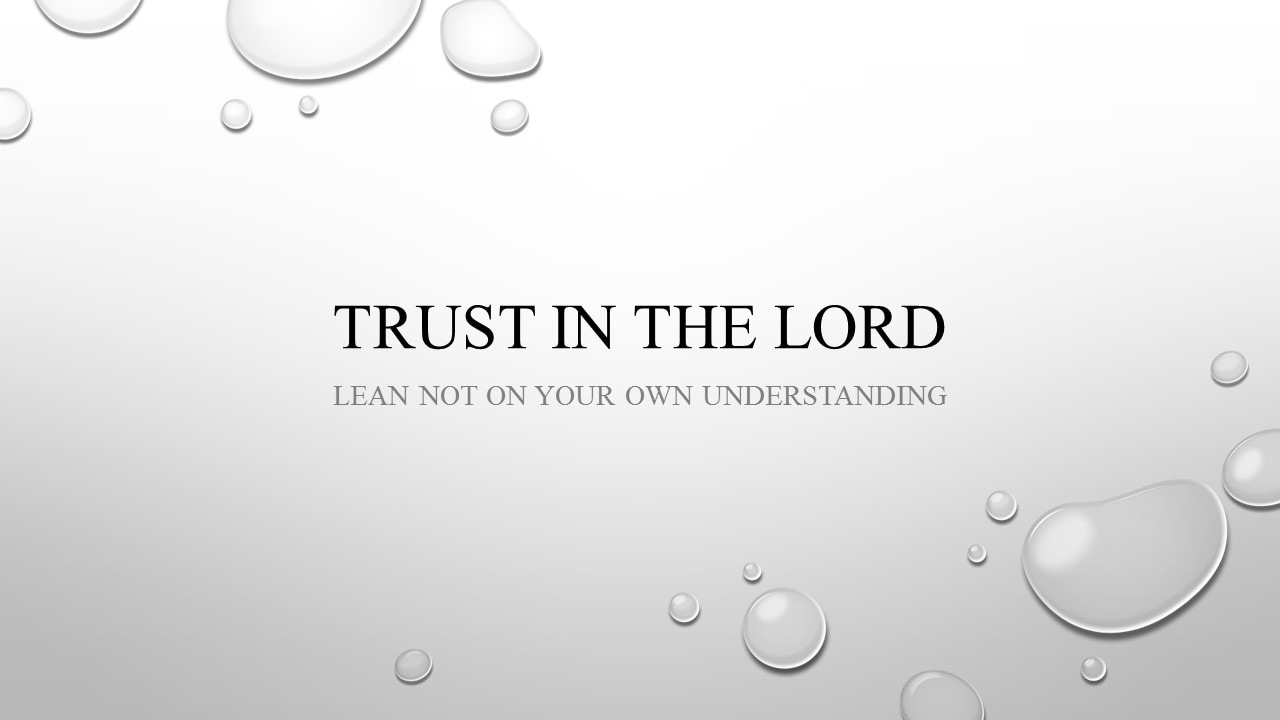
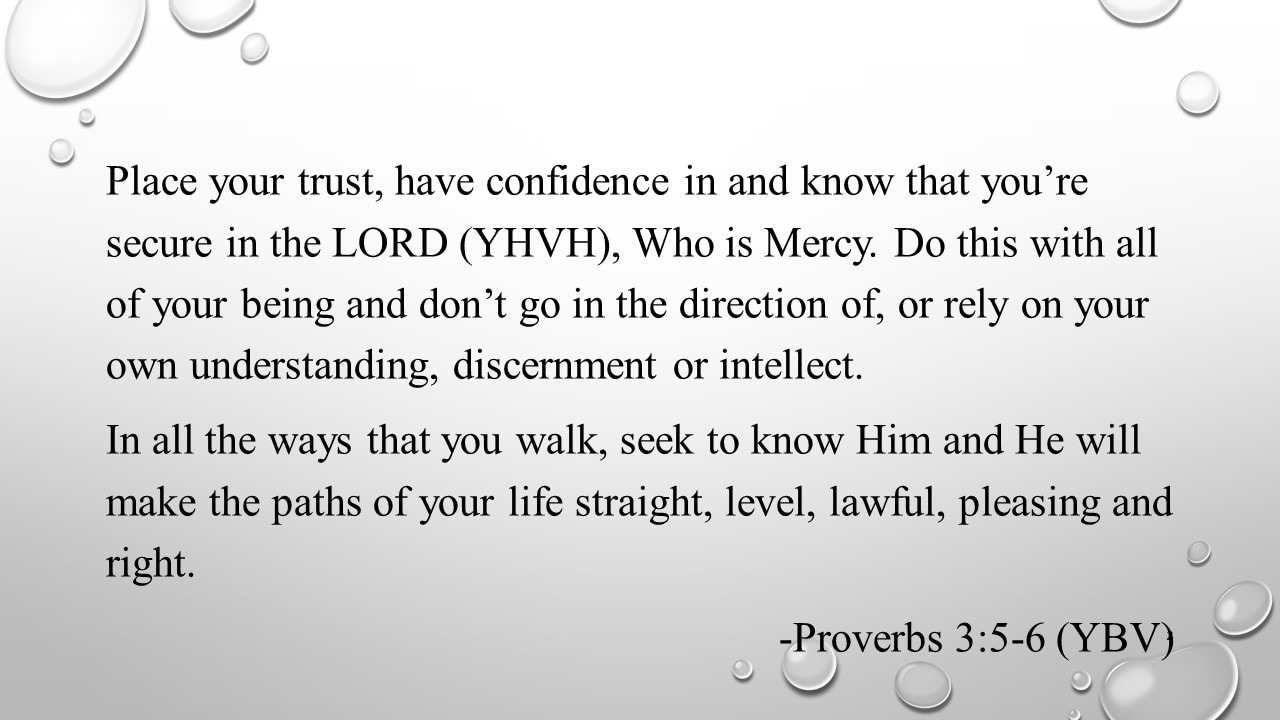
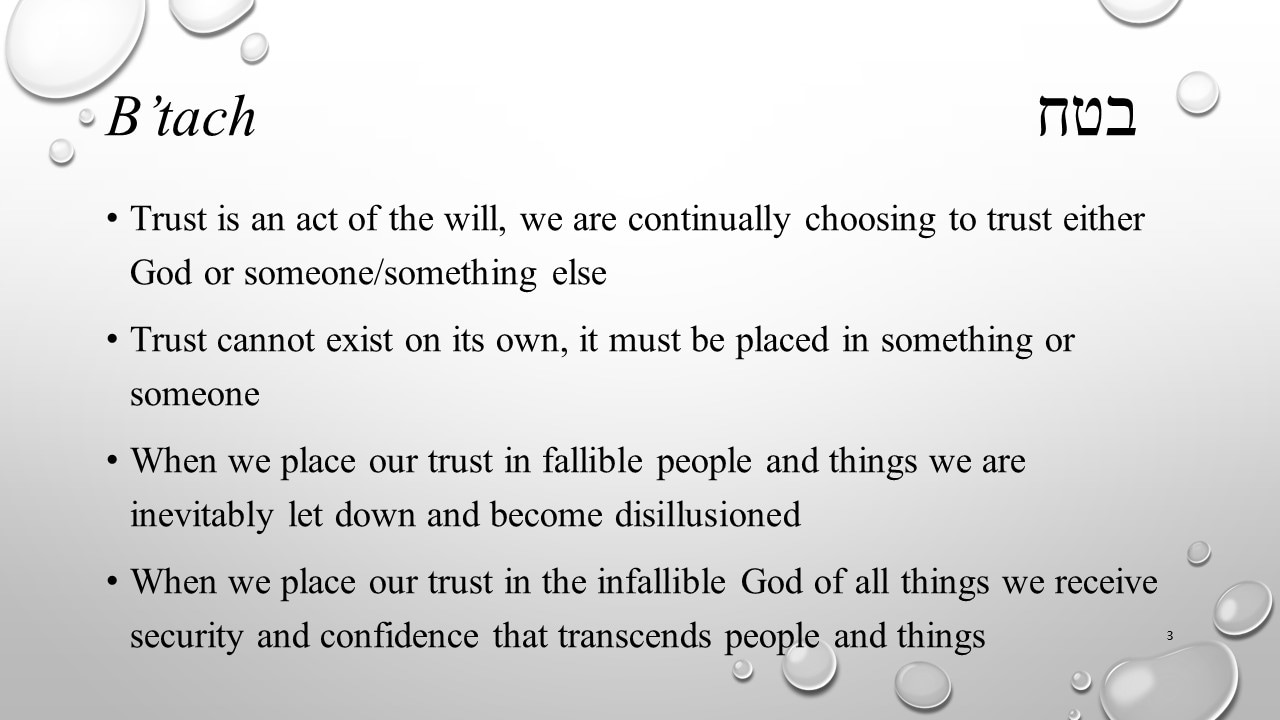
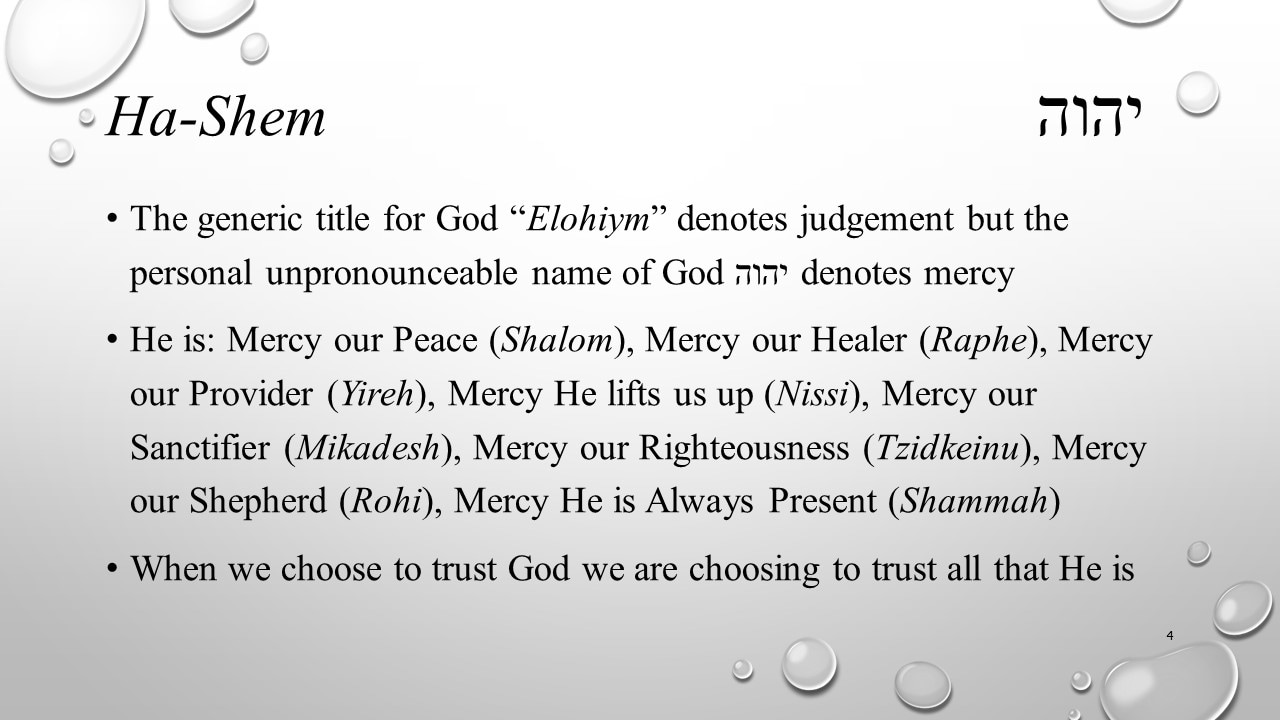
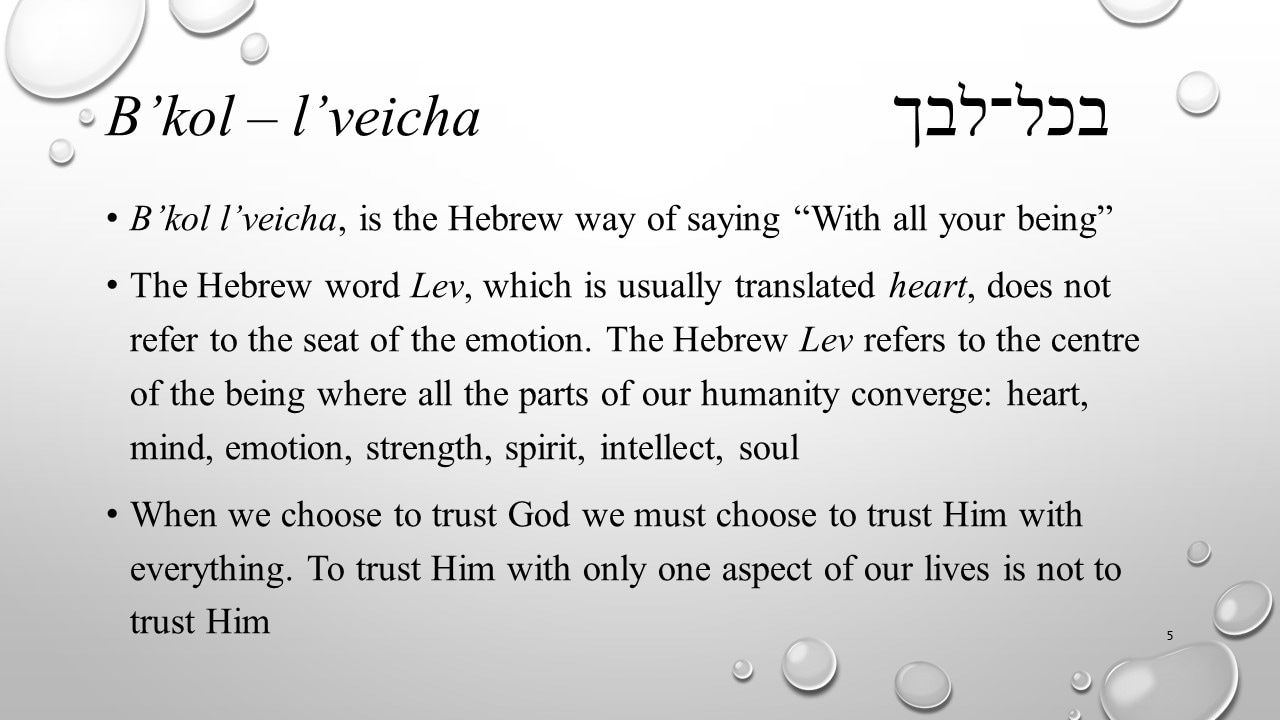
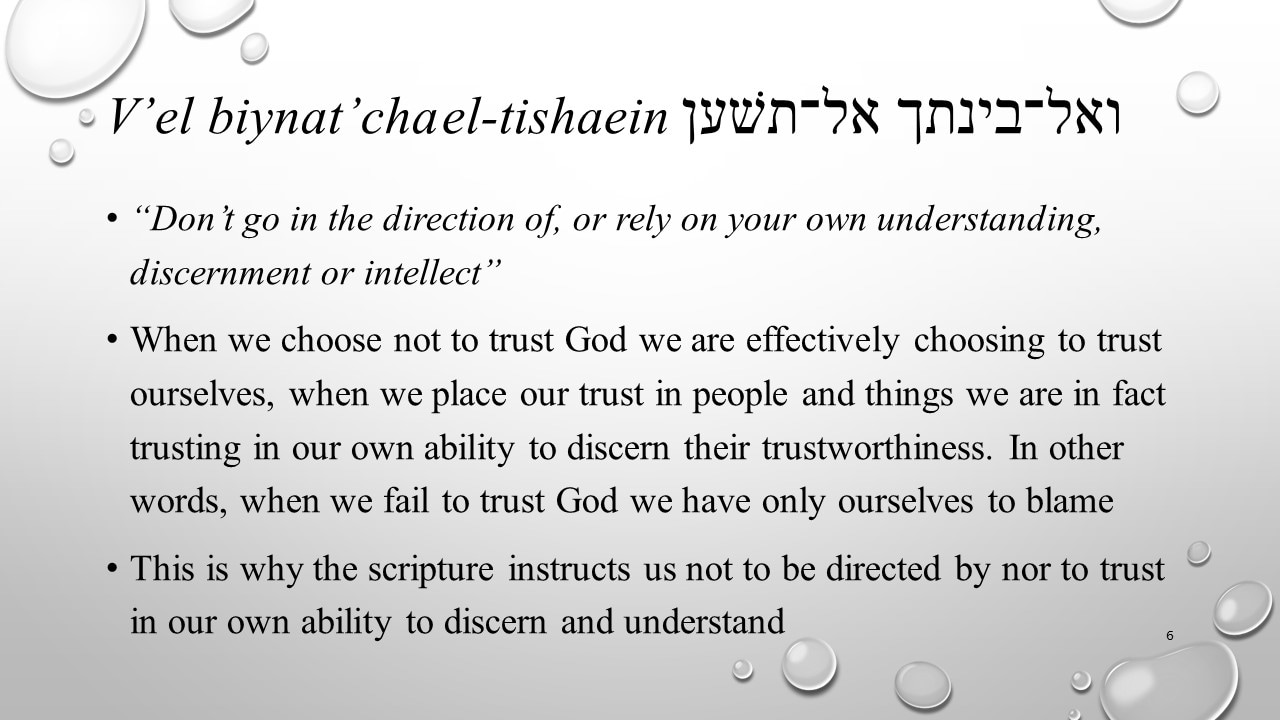
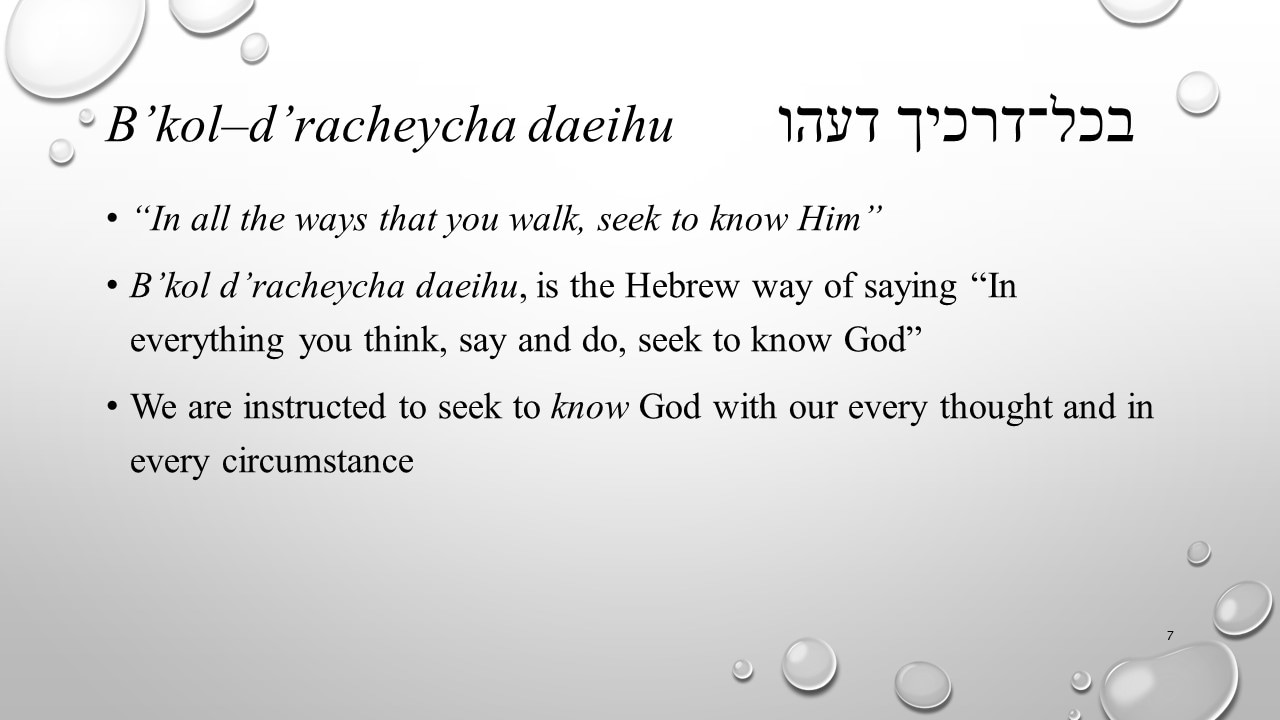
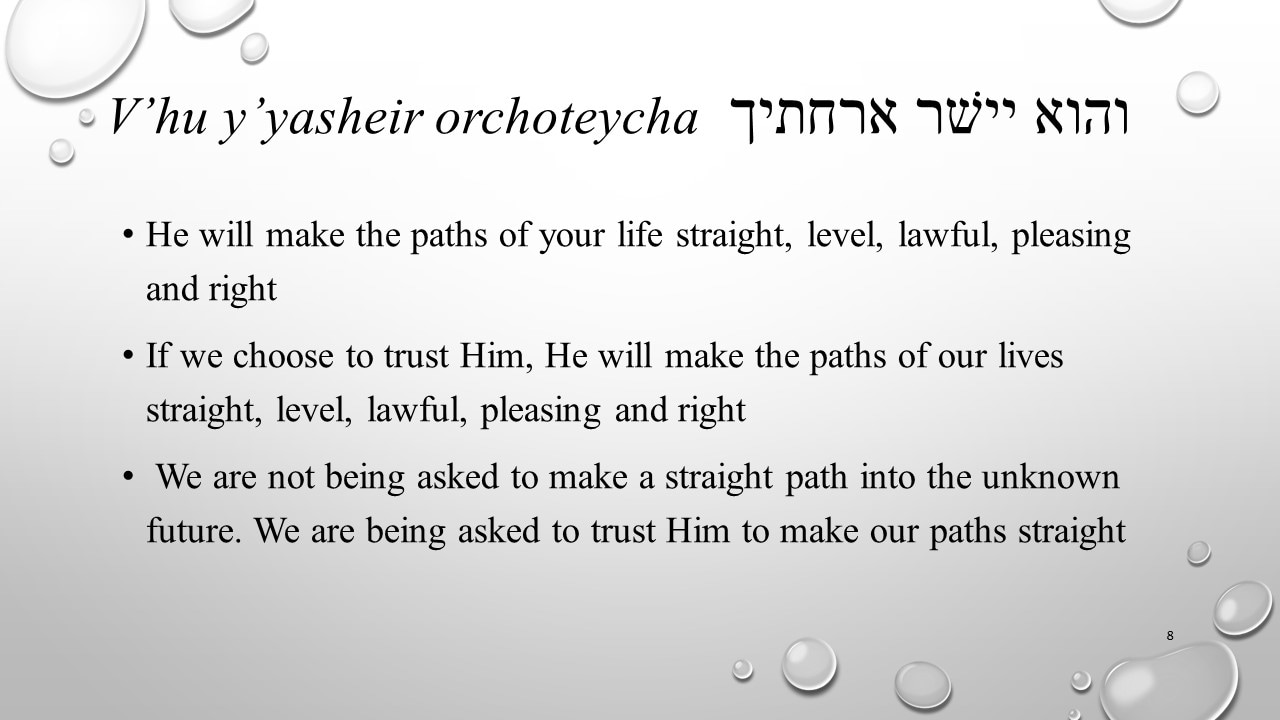
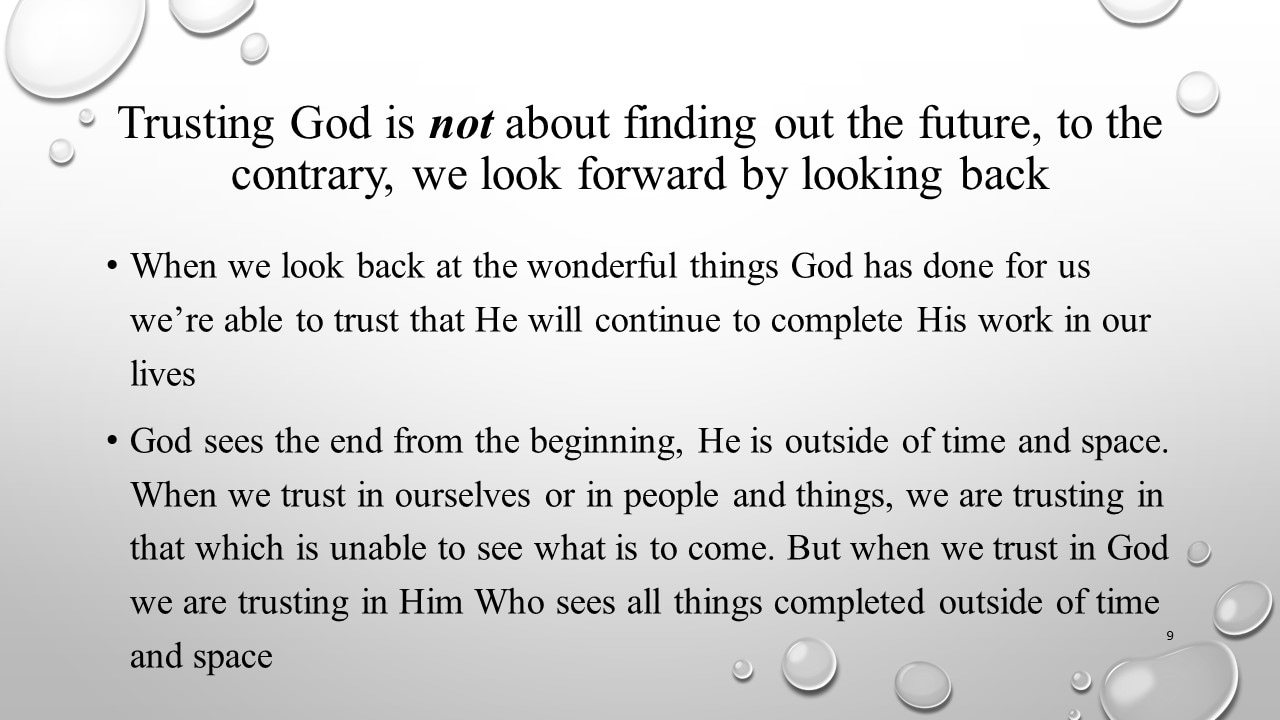
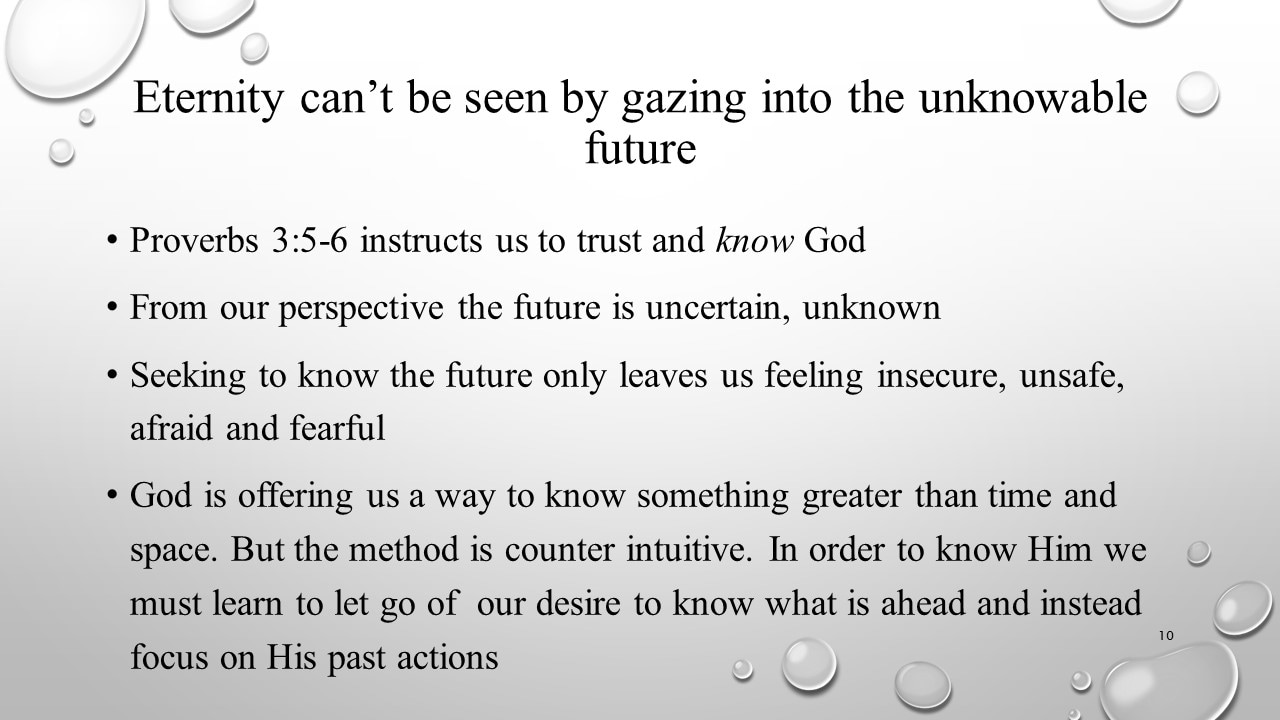
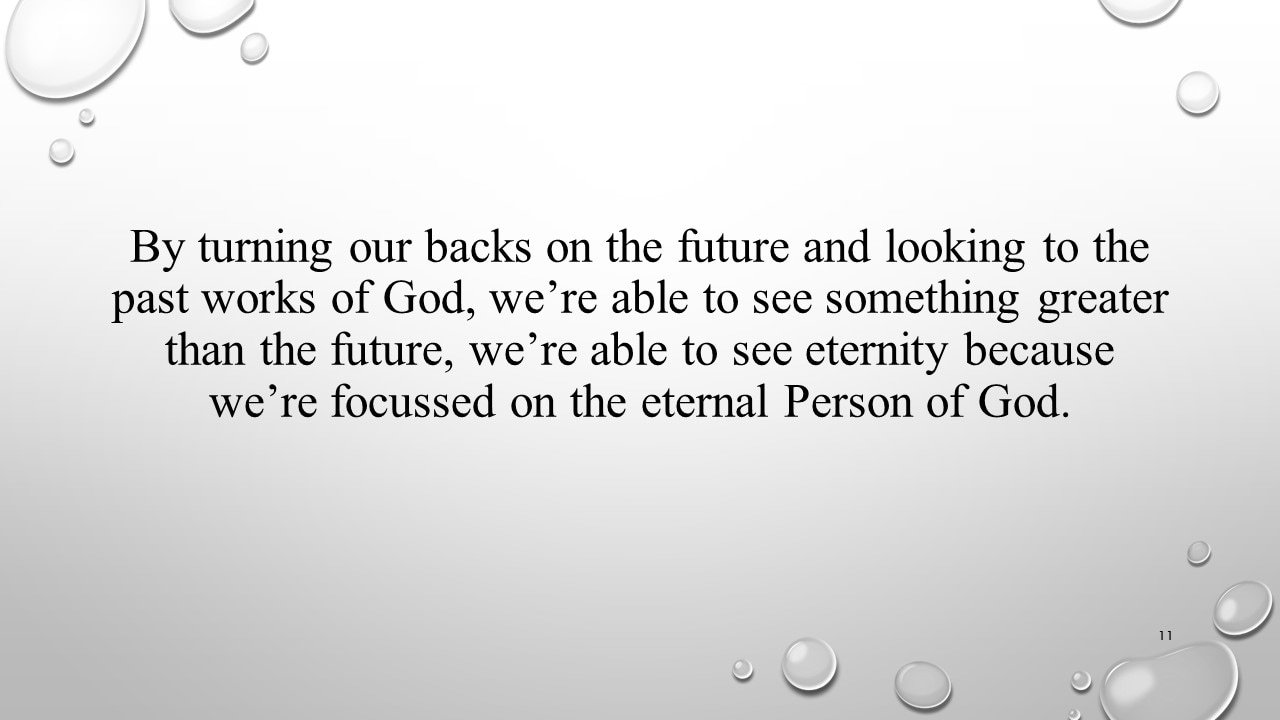
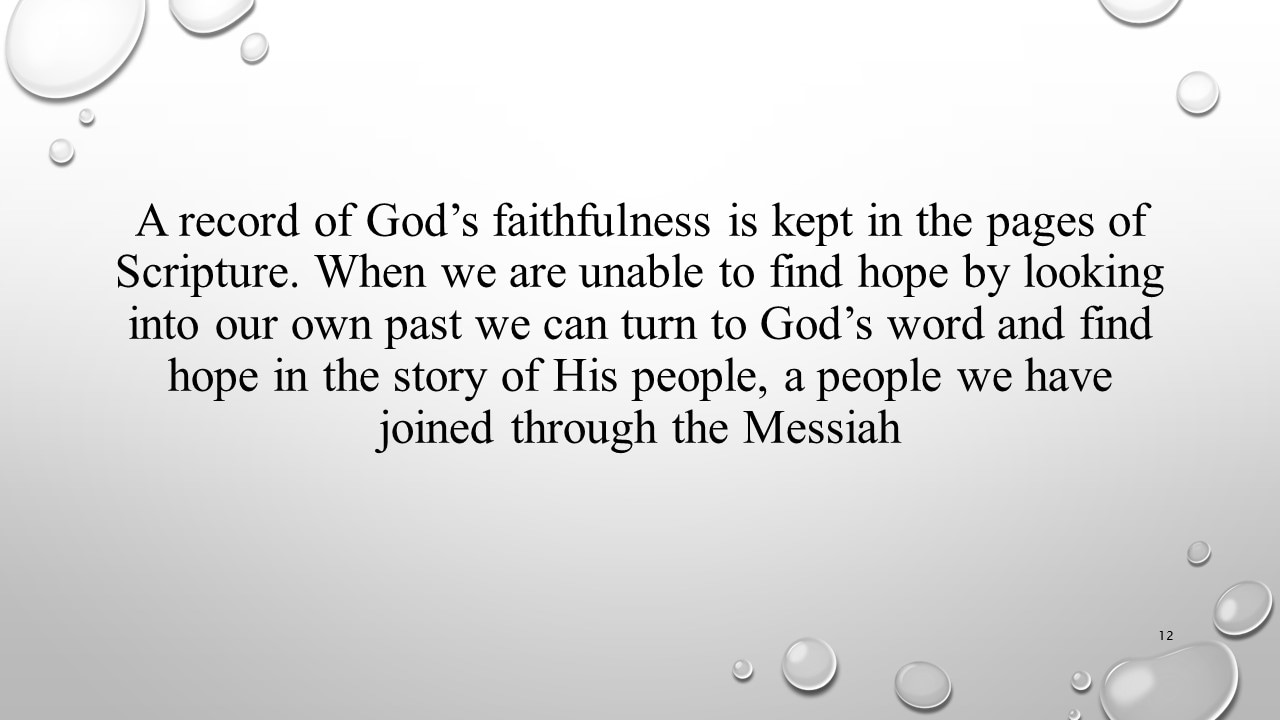
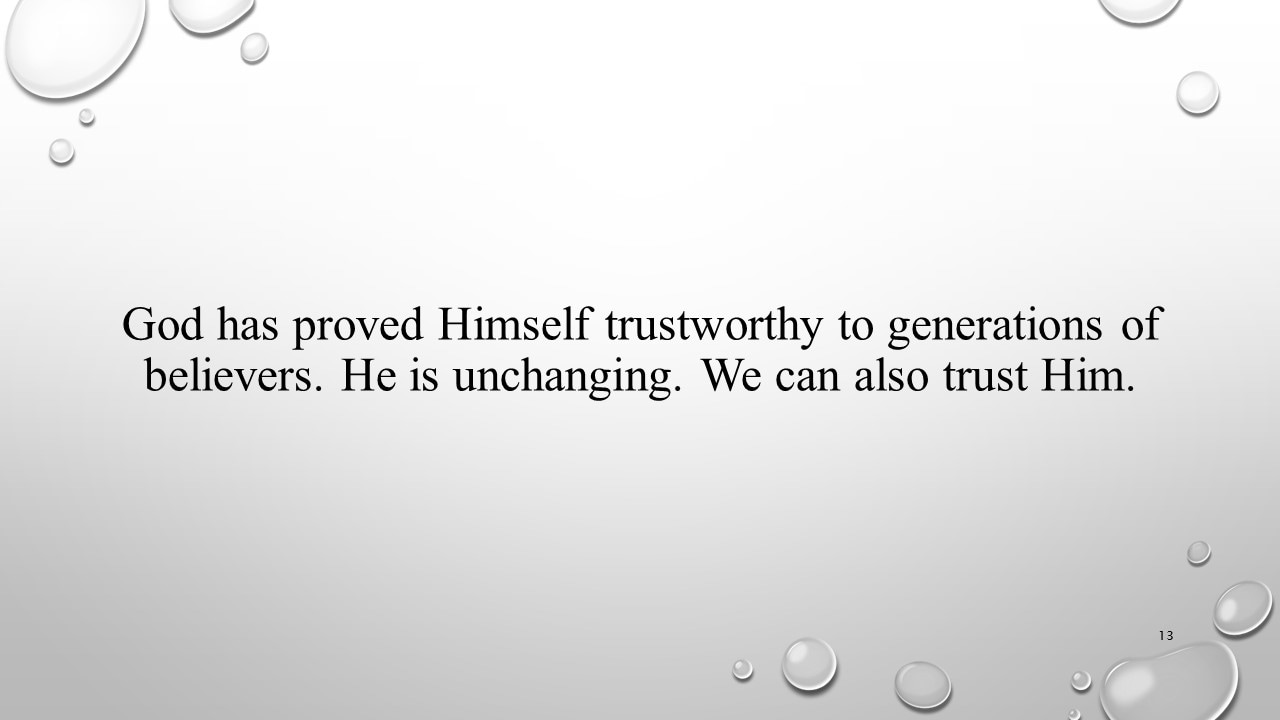
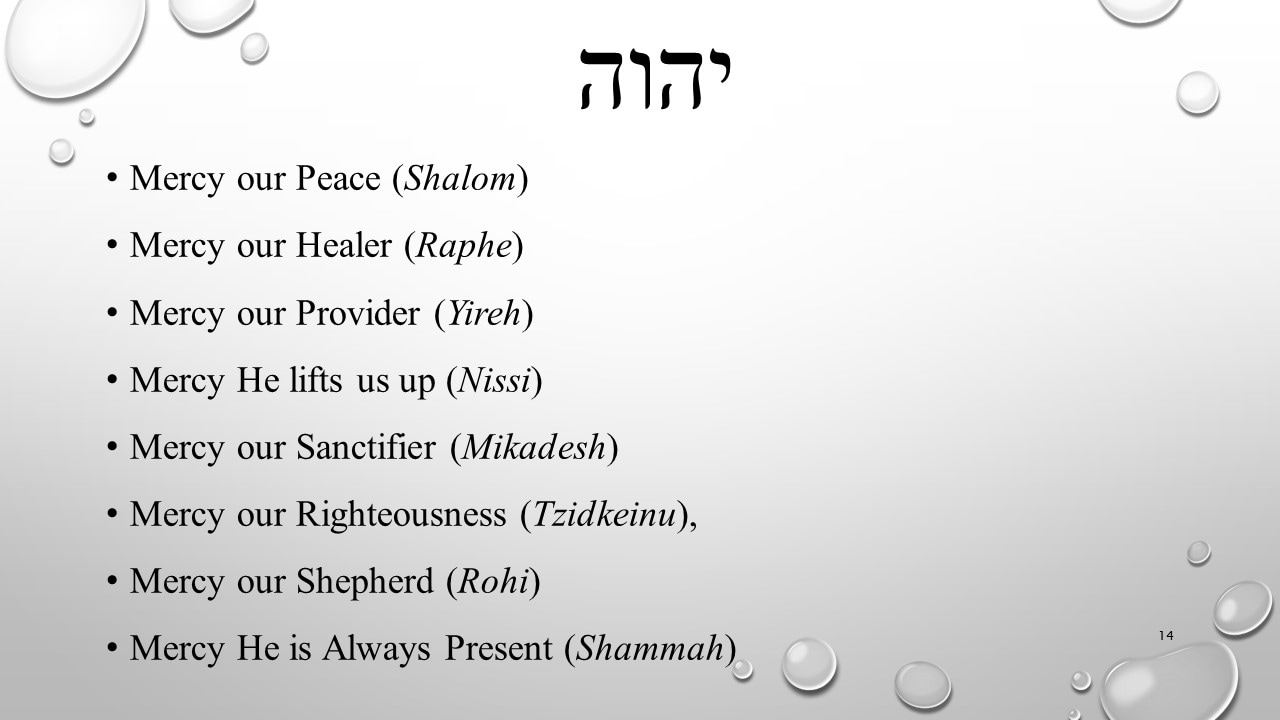
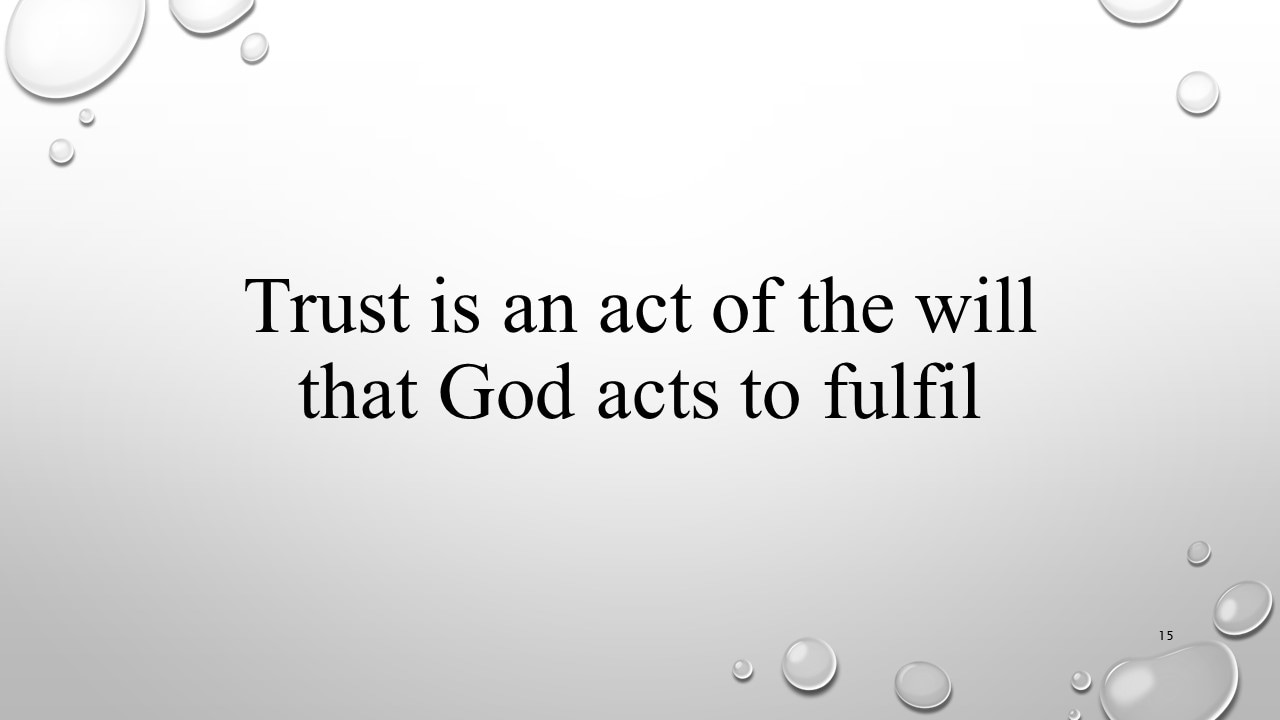


 RSS Feed
RSS Feed